Seven ALF networks gathered in the city of Tangier from March 5 to 8, 2024, representing 60 organizations from Spain, Belgium, Ireland, France, Luxembourg, Tunisia, and Morocco to discuss the challenges of intercultural dialogue in the current context in the Euro-Mediterranean region, as well as the challenges and prospects of cultural cooperation and cultural diplomacy as mechanisms for intercultural dialogue.
Over the course of three days, participants from different backgrounds and cultural backgrounds created a space for dialogue and the exchange of ideas and experiences to develop the Tangier Charter for Cultural Diplomacy in the Mediterranean. Recognizing that the partner networks have extensive experience in organizing joint activities, particularly the Moroccan network, which hosted the action, and the Spanish network, which have already organized four joint activities in Tangier, Seville, Taroudant, and Tarragona, with the aim of strengthening interaction between members of the ALF networks and building relationships that could lead to collaboration on joint projects.
During the preparation period for the inter-network action, each network called on a larger number of associations, the total number of which exceeded the initially announced number. The choice of the city of Tangier was a strong motivation for the partners because it is a true example of an intercultural Mediterranean city.
Overall, the meeting was structured as follows:
The first day, entitled "Cultural Diplomacy and Cultural Governance," aimed to identify the challenges of intercultural dialogue and the prospects for cooperation and cultural diplomacy in the current context in the Euro-Mediterranean region from the perspective of the participating national institutions and networks.
Two plenary sessions were organized to discuss these topics after the opening session chaired by the Moroccan network leader and the executive director of the ALF. They featured the participation of two Moroccan government institutions: the Digital Development Agency and the Higher Council for Audiovisual Communication, in addition to the network leaders.
The morning of the second day, entitled "Cultural Diplomacy and the Challenges of Mobility," highlighted in its first roundtable: cultural governance and new challenges in the Mediterranean through: The conference focused on the protection and promotion of shared cultural heritage, support for cultural entrepreneurship, the use of media and technology, and the encouragement of grassroots initiatives by civil society and cultural actors. In the second roundtable, participants highlighted cultural cooperation and networking in the Mediterranean through strengthening intercultural exchanges, encouraging and promoting youth civic and political participation, and the need for networking. In the afternoon, a networking session was organized to share new initiatives and identify international partners for their implementation. This was followed by five simultaneous interactive workshops aimed at exchanging and sharing best practices.
The workshops included:
A workshop on creating a Video Art Forum and a debate on the meaning of freedom, led by Ana Henriques Delgado, representative of the Alarde Association for Rural Art and Design, from the Spanish network.
An educational workshop on greenwashing as the best way to resist its pernicious influence, led by Peadar King, representing KMF Productions, from the Irish network.
An educational workshop on theater techniques, led by Covino Bilal Luca, representative of Compagnie Barbiana, from the Belgian network.
An educational workshop on podcast creation techniques, led by José Carlos Cabrera Medina, representative of Ruta Mediterránea, from the Spanish network.
An educational and interactive workshop on "Implementing Cultural Diplomacy at the University: Mechanisms, Instruments, and Tools," led by Bouchaib Zahawi and Barry Moctar of Hassan University, representing the Moroccan network.
Later in the day, a live musical performance was held as the result of an artistic residency between young participants. The third day, entitled: Networked Cultural Diplomacy, began with a presentation by the ISESCO representative and a roundtable discussion on strengthening the role of culture in the Mediterranean: Dialogue for the Tangier Charter for Cultural Diplomacy and Euro-Mediterranean Dialogue. This was followed by a discussion in five subgroups to develop a vision and recommendations for the Tangier Charter.
Several parallel interactive workshops took place below, based on the initially identified objective and methodology:
In the first workshop, entitled: Youth in Intercultural Dialogue: Where Can We Start?, participants shared best practices based on projects carried out internationally:
Presentation of the AFEX project (Aprenèn Famílies en Xarxa) by Mariana Rico Montagne de Irénia Jocs de Pau from the Spanish network
Cultural mediation in video games by Tamara Aleksic, representative of the Arts Et Publics organization from the Belgian network
Interuniversity exchange between University of Antwerp and the University of the Witwatersrand by Leonie Aregbe, representing the University of Antwerp, Belgium
Project with IOM on the prevention of exclusion and radicalization by Jaouad Diouri, representing the Forum Associatif de Martil, Morocco
Experience of Contractual Volunteering by Mustapha Marchouki, representing the Annassr Association and the Moroccan Volunteer Collective in Morocco
Promoting intercultural exchange through artistic residency projects and training for artists by Mohamed Tazrouti, representing the Connecting Cultures Forum, Morocco
The Indiscreet Ventanilla – Review by Lourdes Miron Miron and Boutaina El Hadri El Gmili, representatives of the Jovesólides network in Spain.
The second workshop, entitled: Sharing Our Common Cultural Heritage, featured young people discussing cultural heritage through sport, with Allybocus Mohammud Ahmud Fayaaz from Ireland; through digital music with Saima Sammoud from Tunisia; through academic research with Akhsay Abdellah from the Euro-Mediterranean University of Fez, Morocco; through history with Cliodhna Noonan, representing Acting Up from Ireland; and through the experience of the Euro-Mediterranean Chamber of Art and Culture with Kheltent Nasrine from Belgium.
The third workshop focused on practical activities and networking, during which two proposals were presented:
How to transform a fable into a play by dramatizing it, with Hilal Naim, representing the Almichaal Association of Morocco. How to express diversity, coexistence, and the symbols of shared cultures through a drawing workshop by Laila Benhalima, representing the Matissa Association of Morocco.
The methodology used to develop the program allowed for the study of various themes in all their complexity and depth, and ensured synergies and collaborations were created between participants working in similar fields.
 English
English
 العربية
العربية
 Le français
Le français

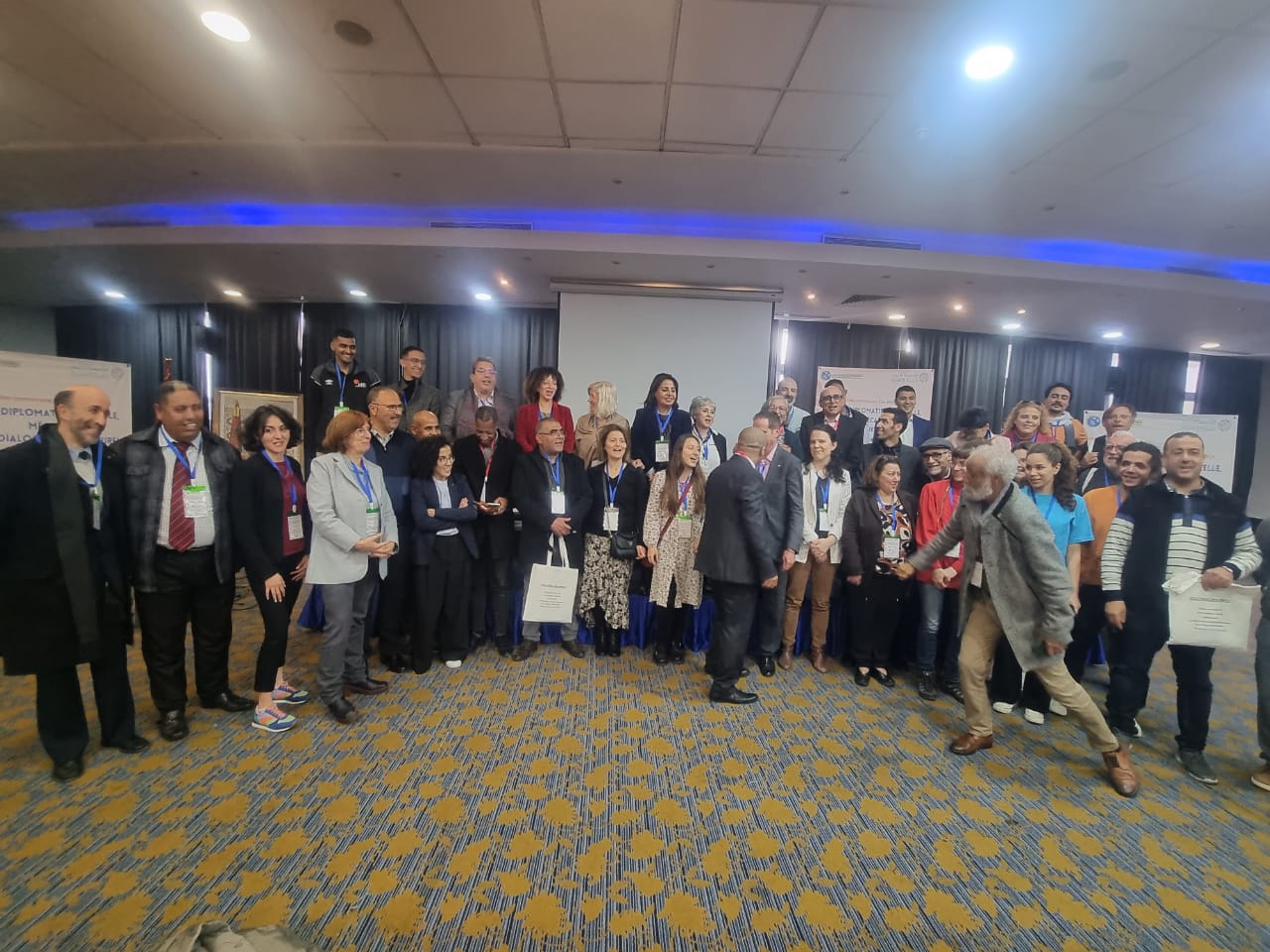
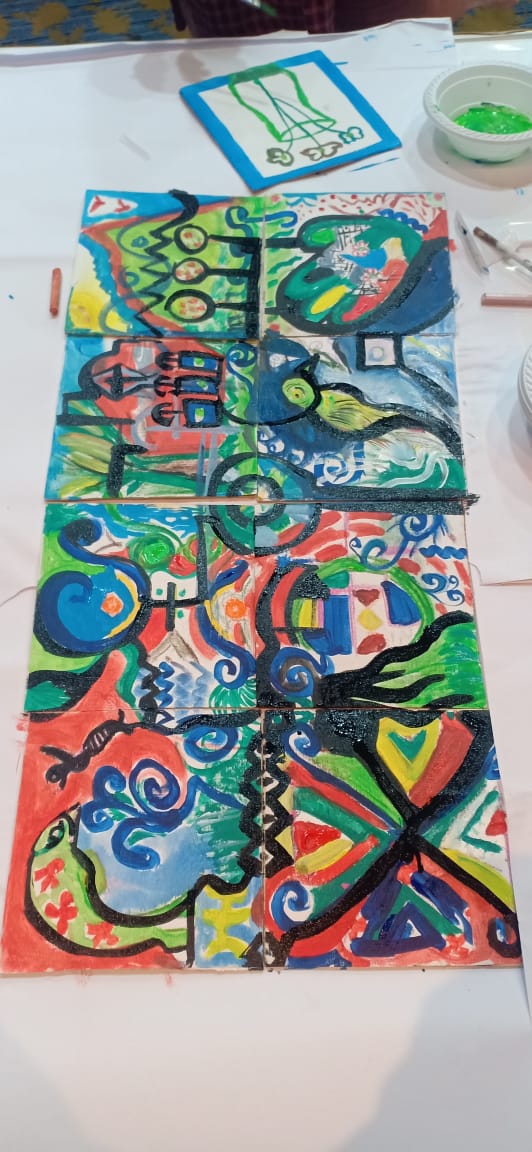
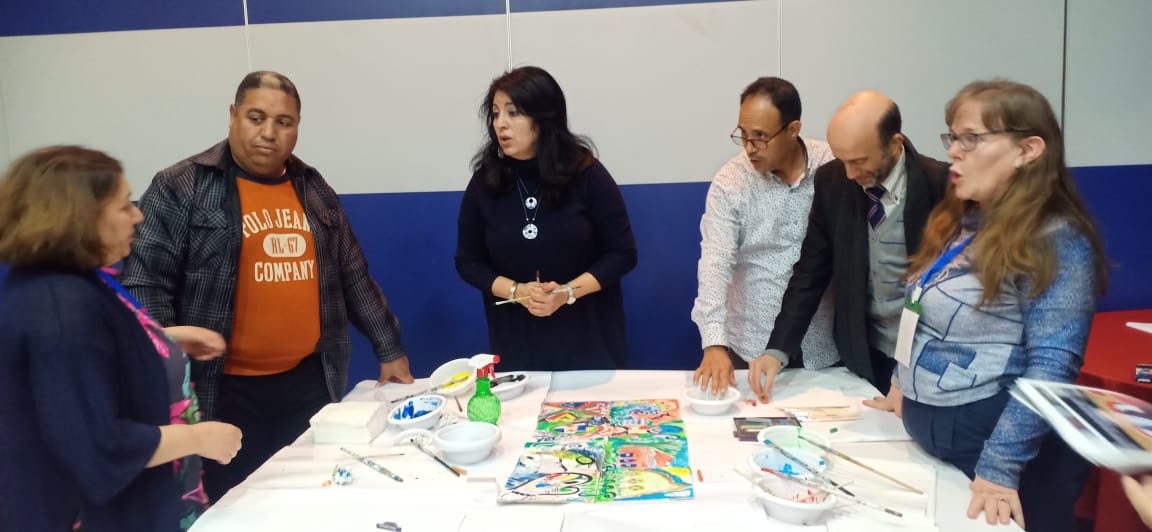
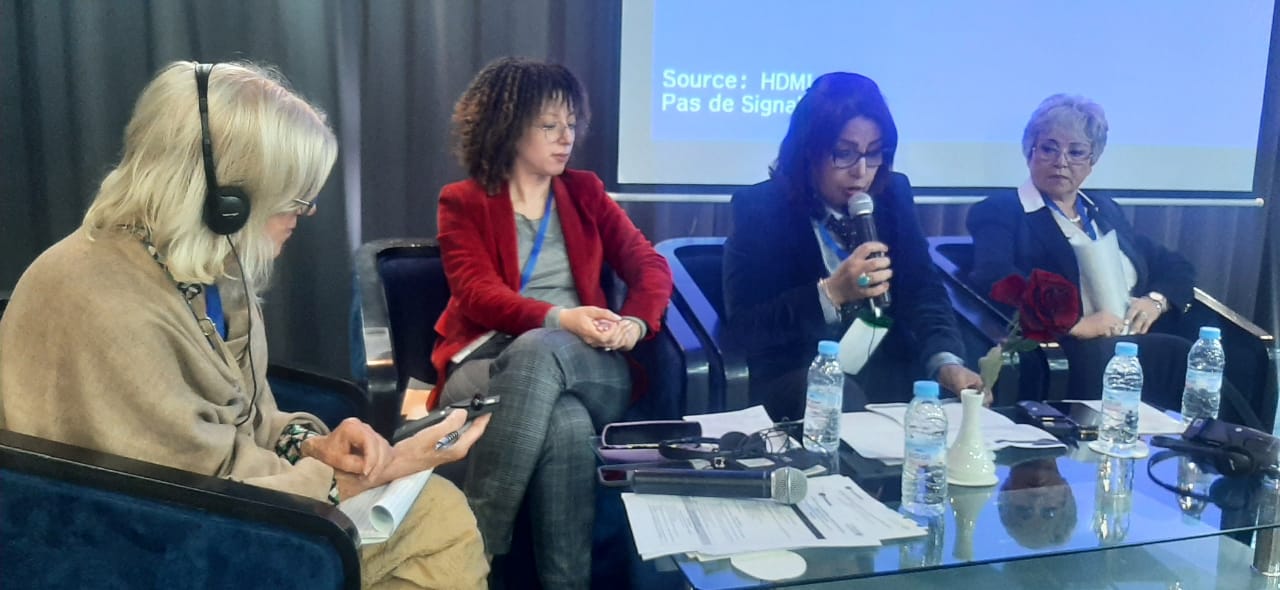
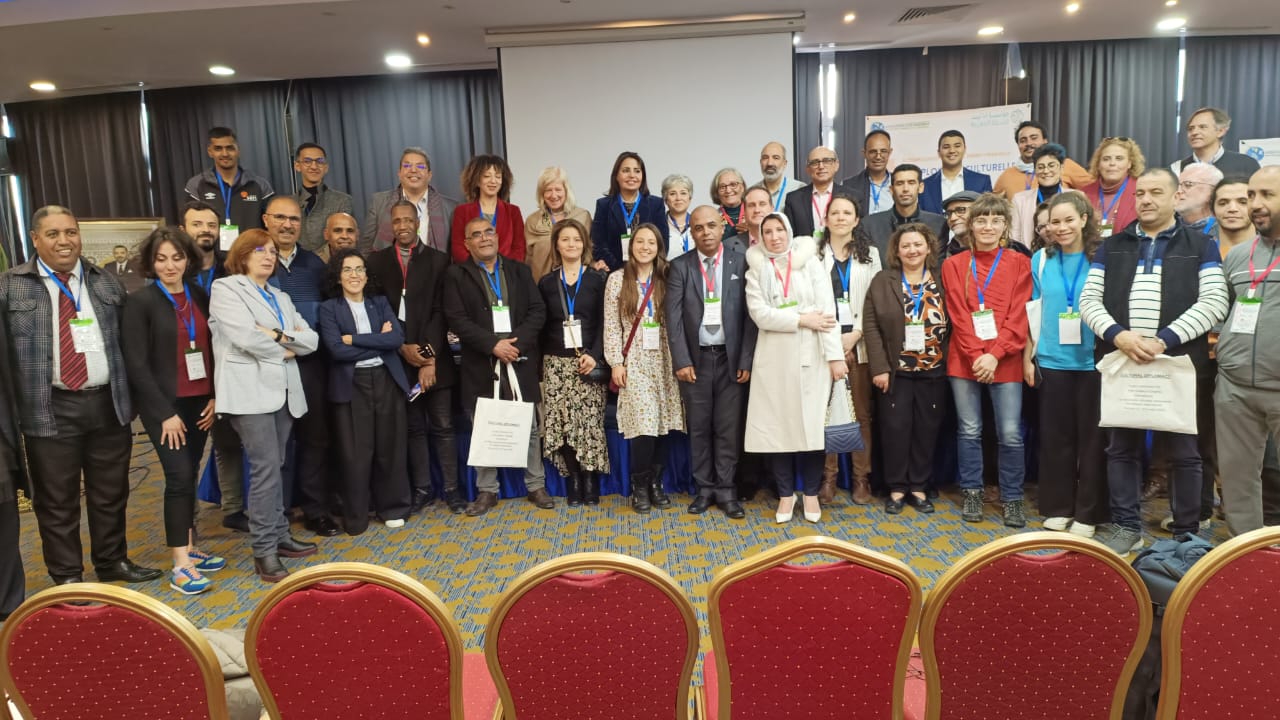
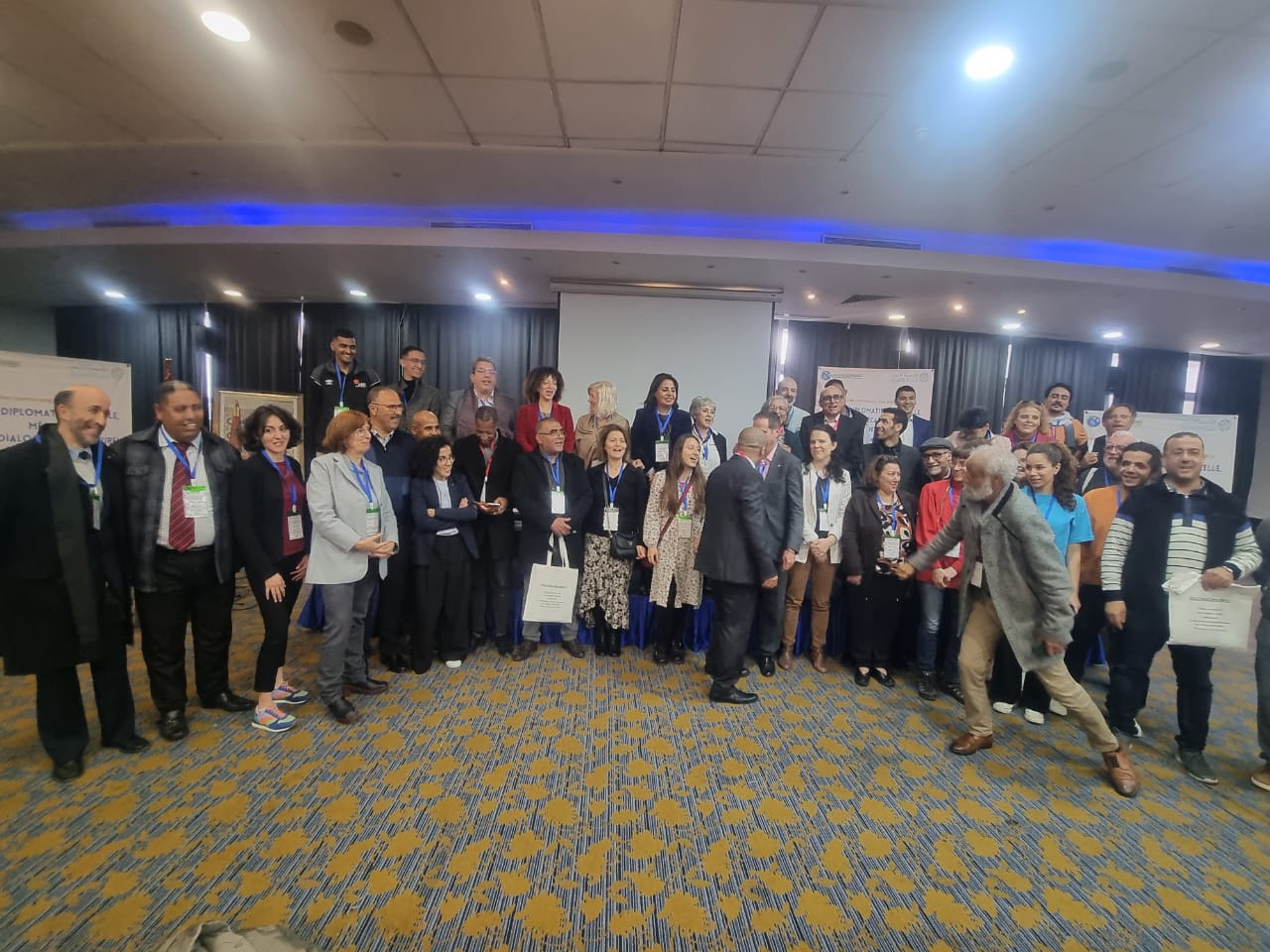
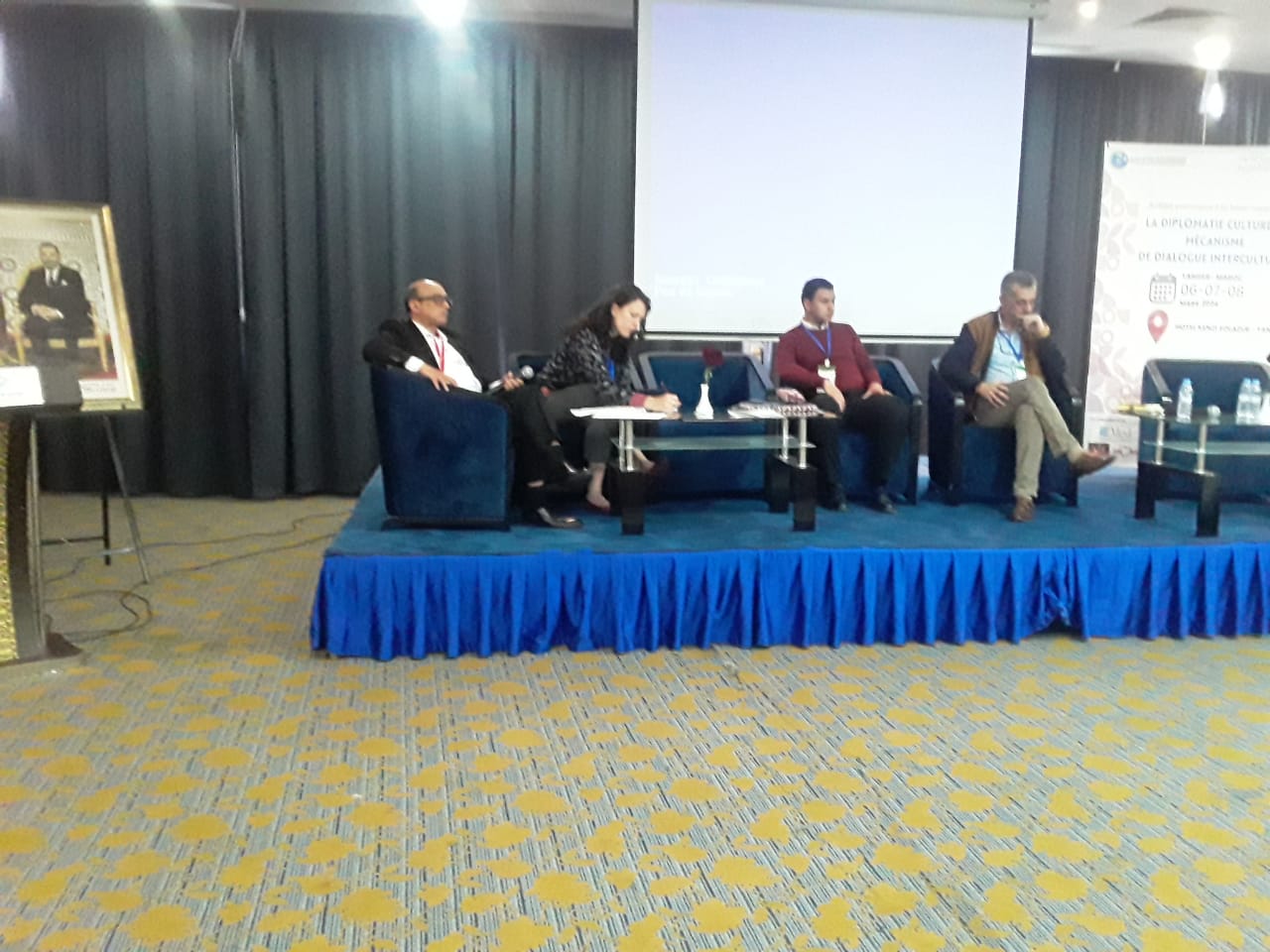
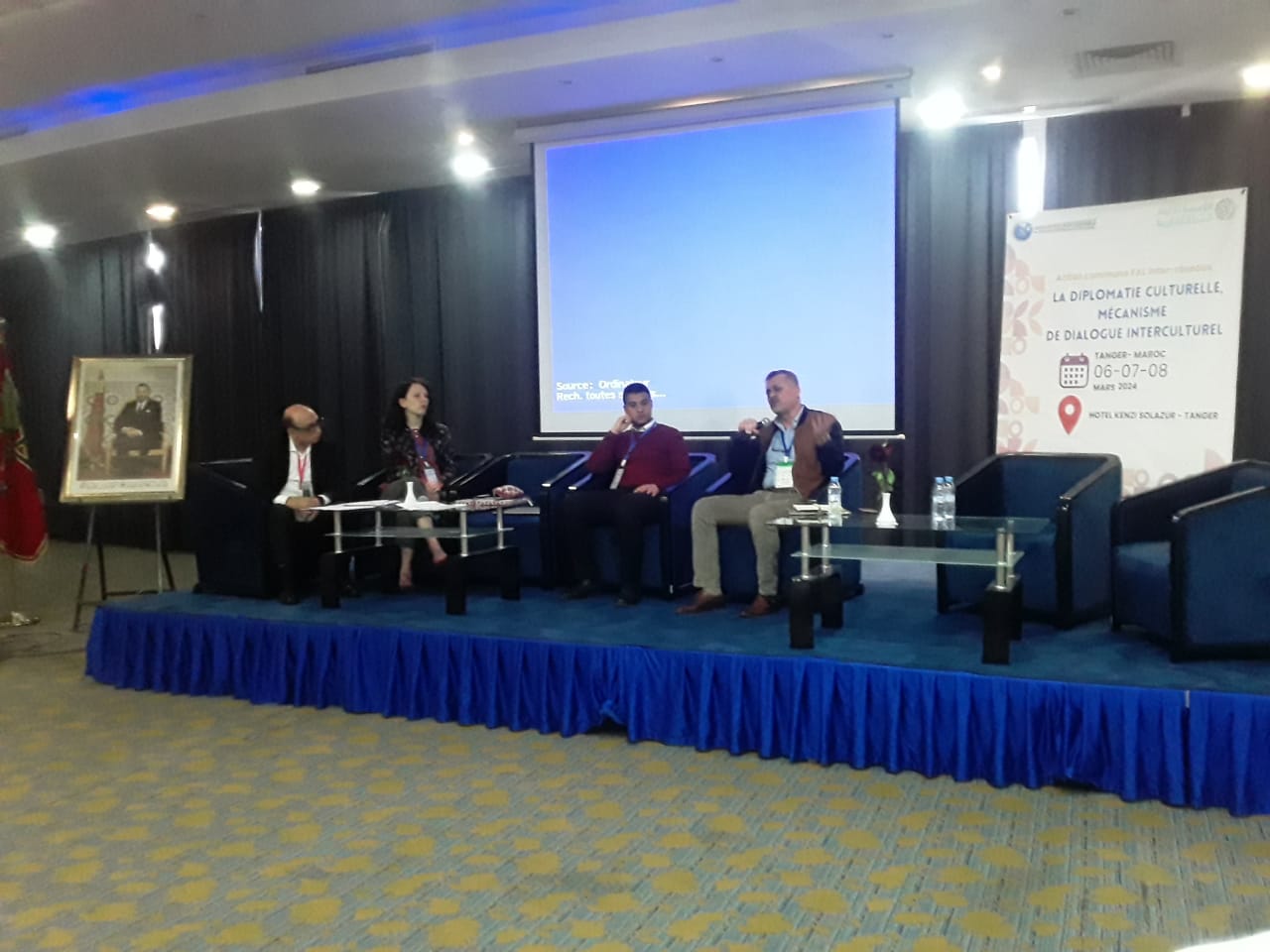
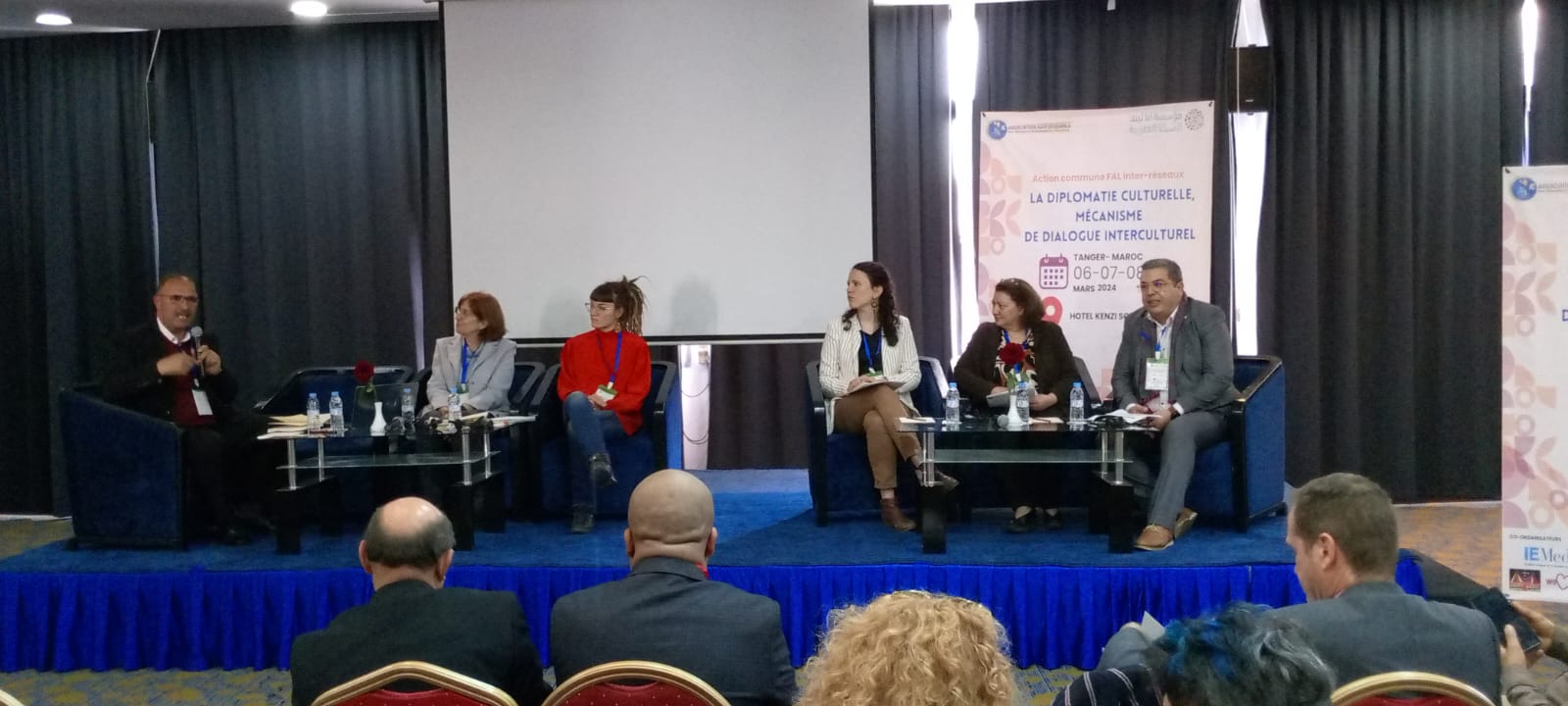
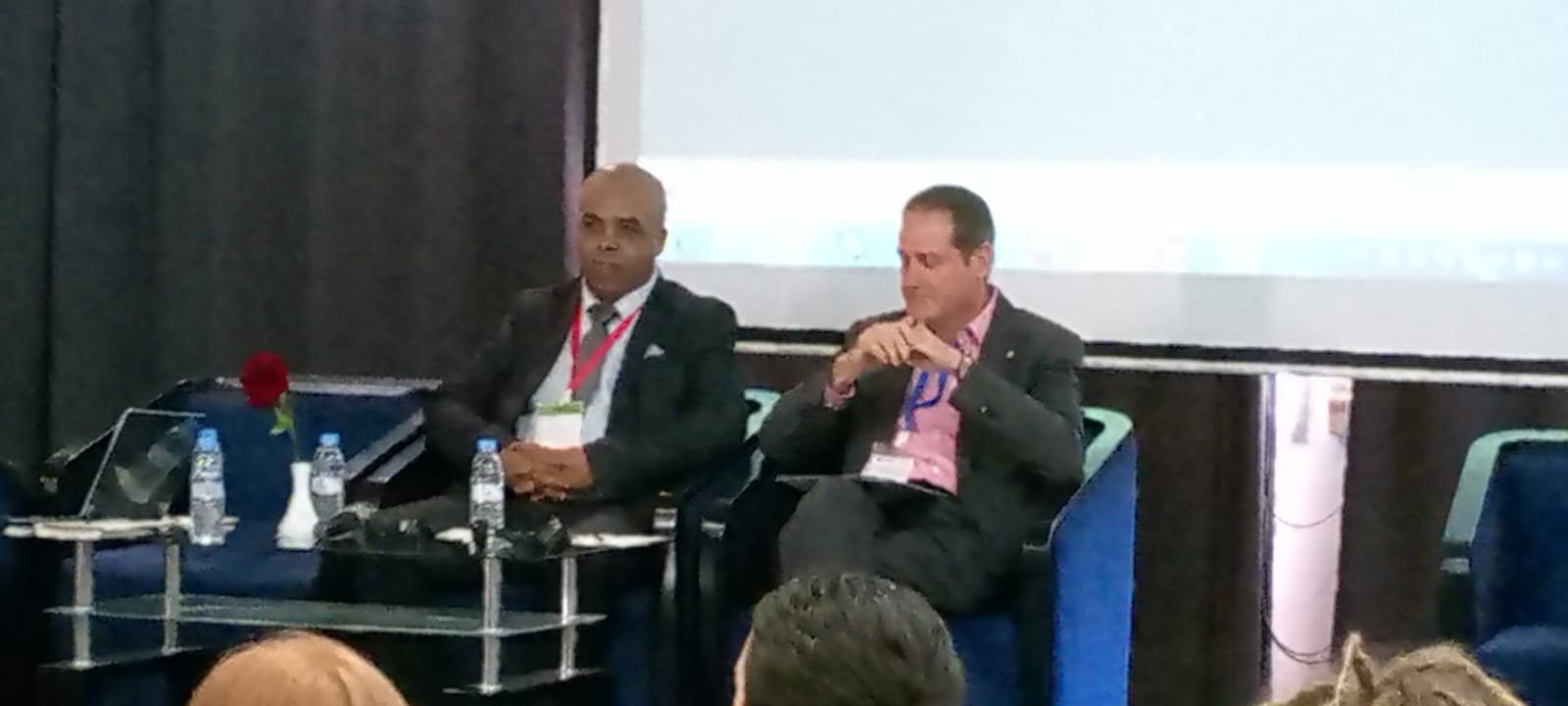
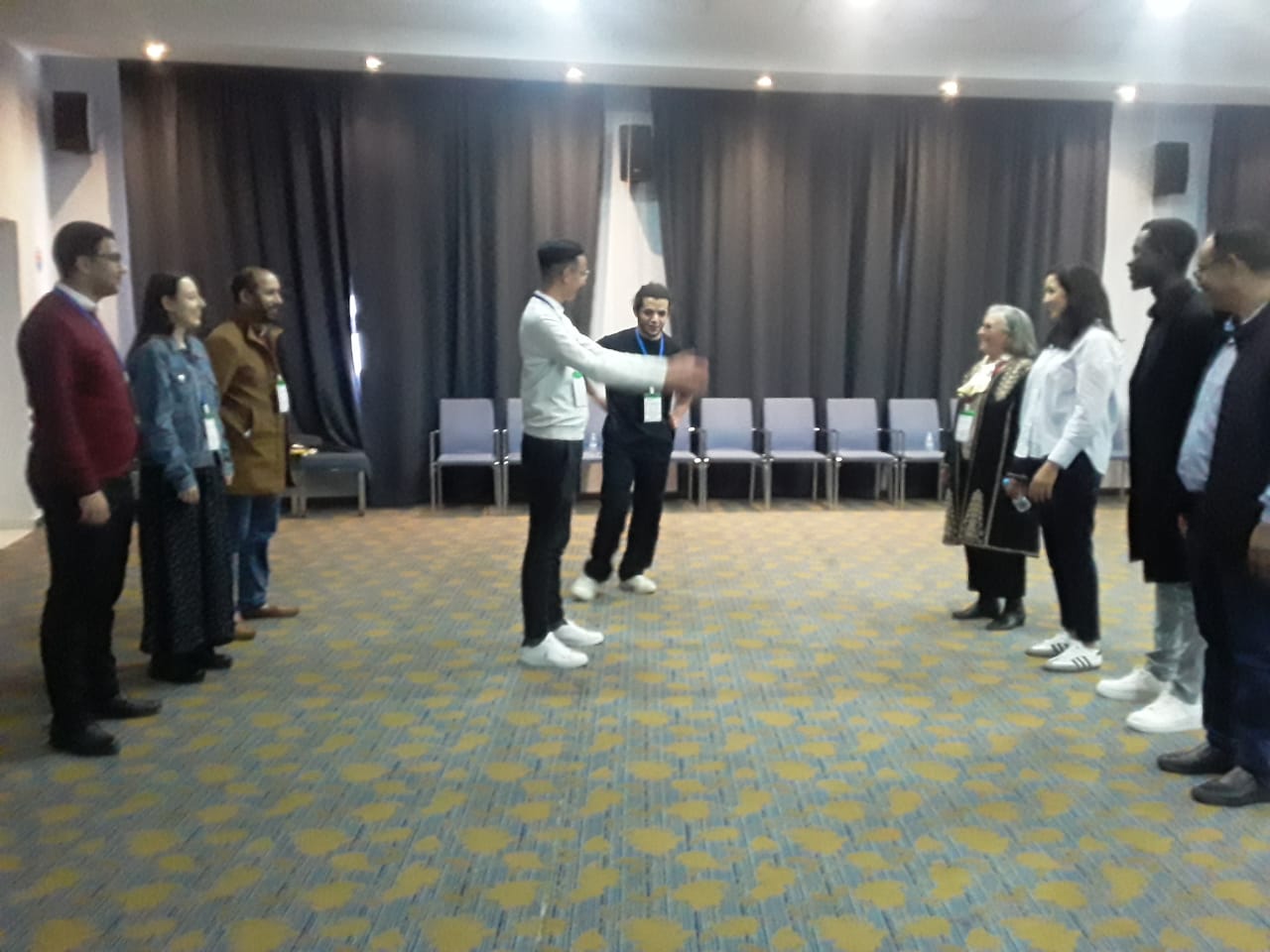
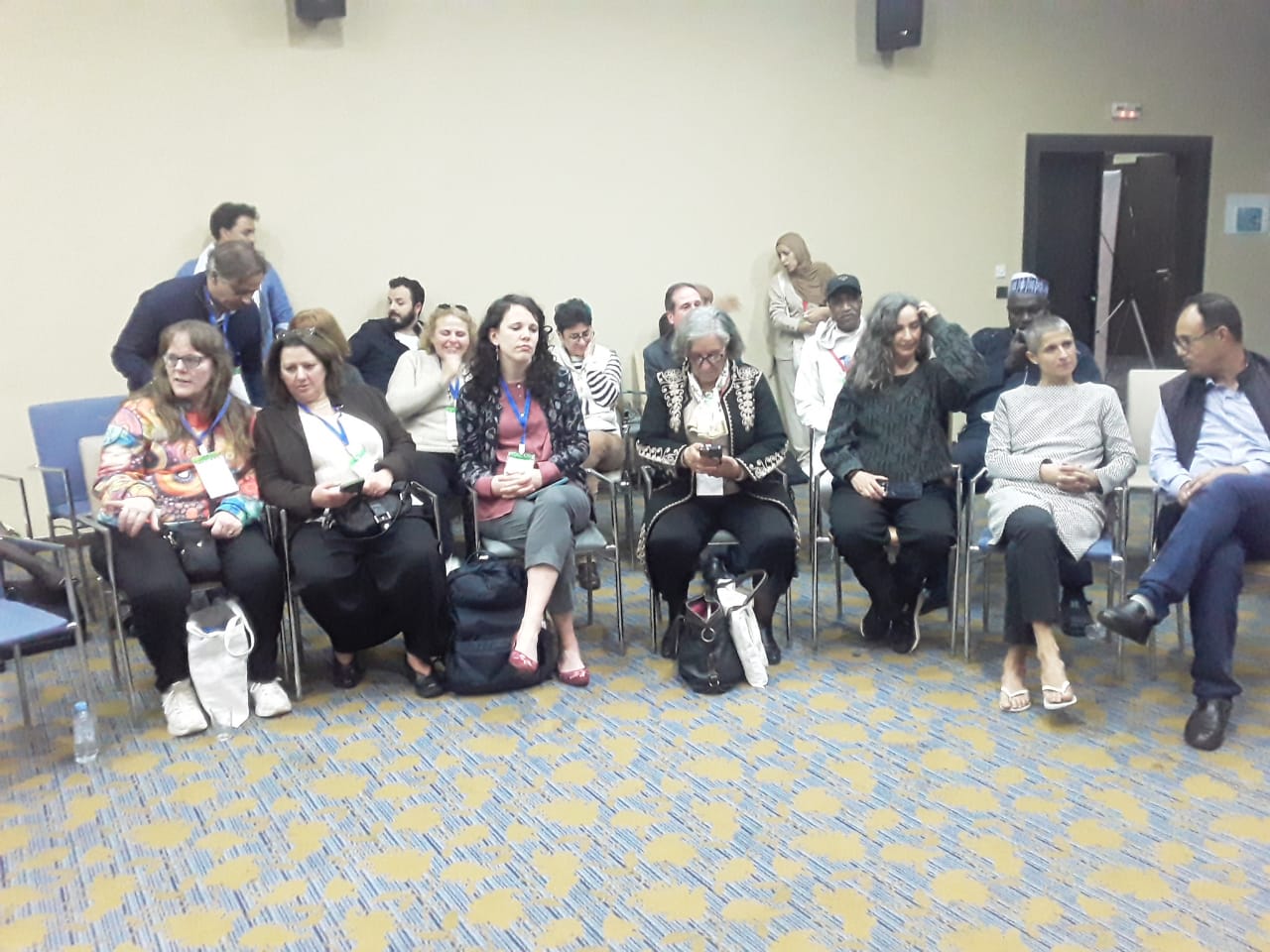
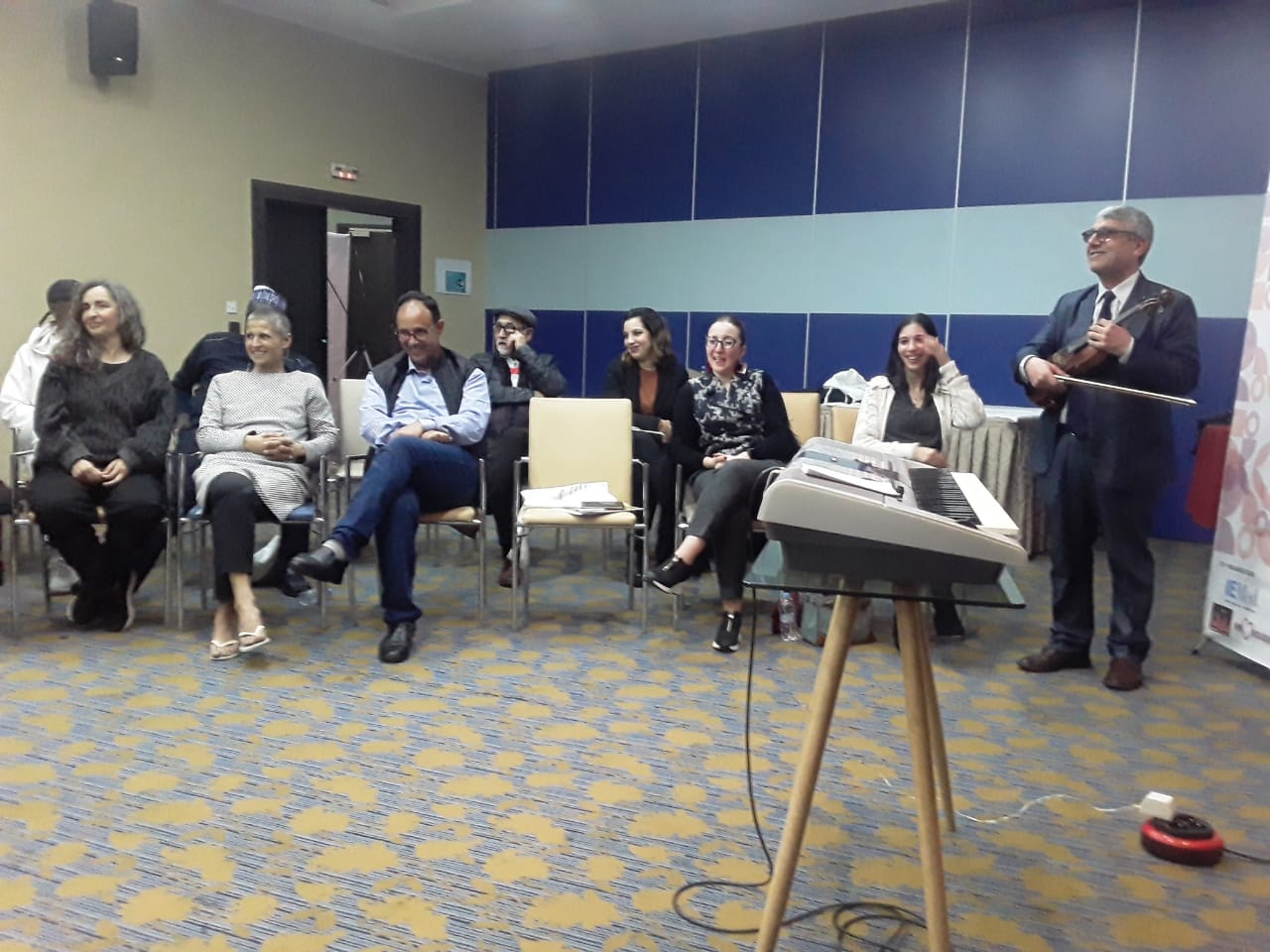
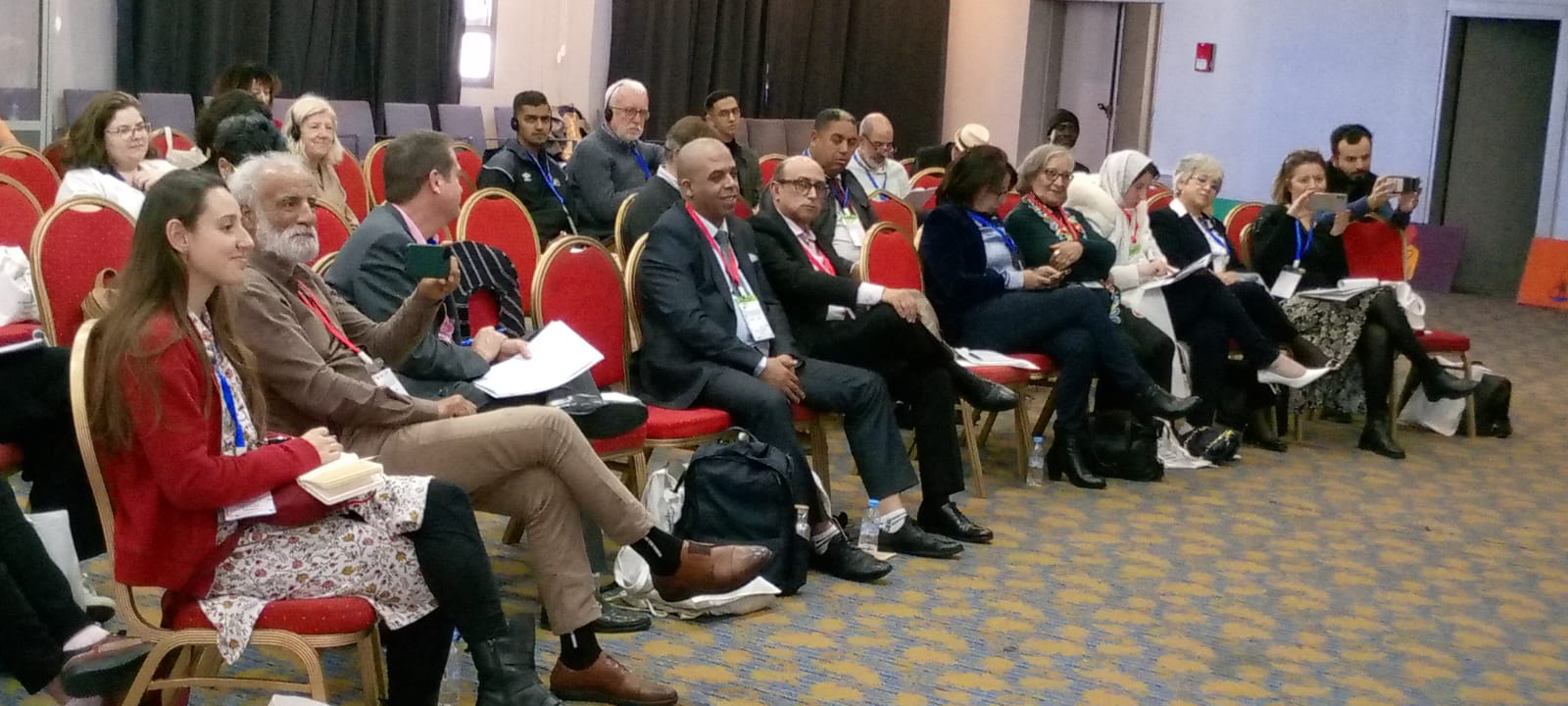
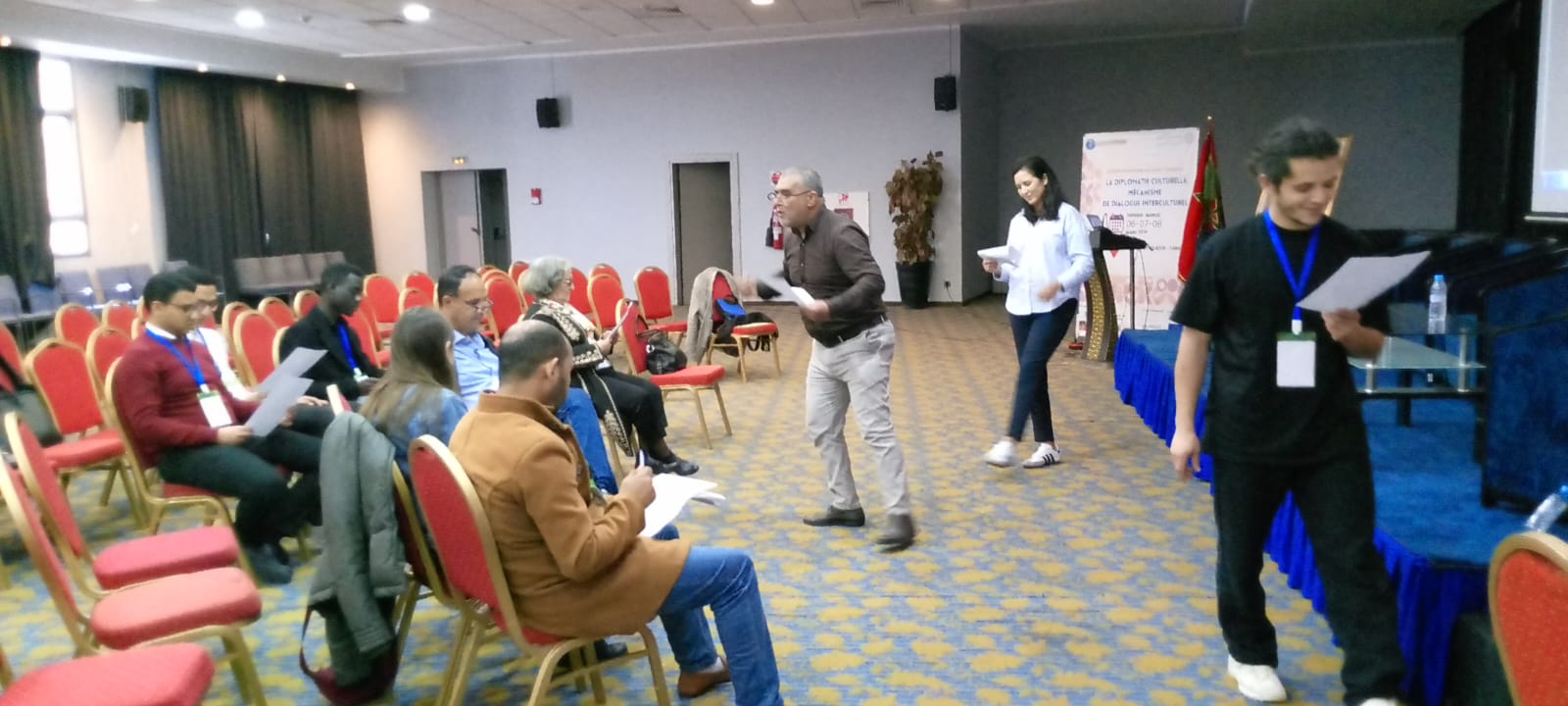
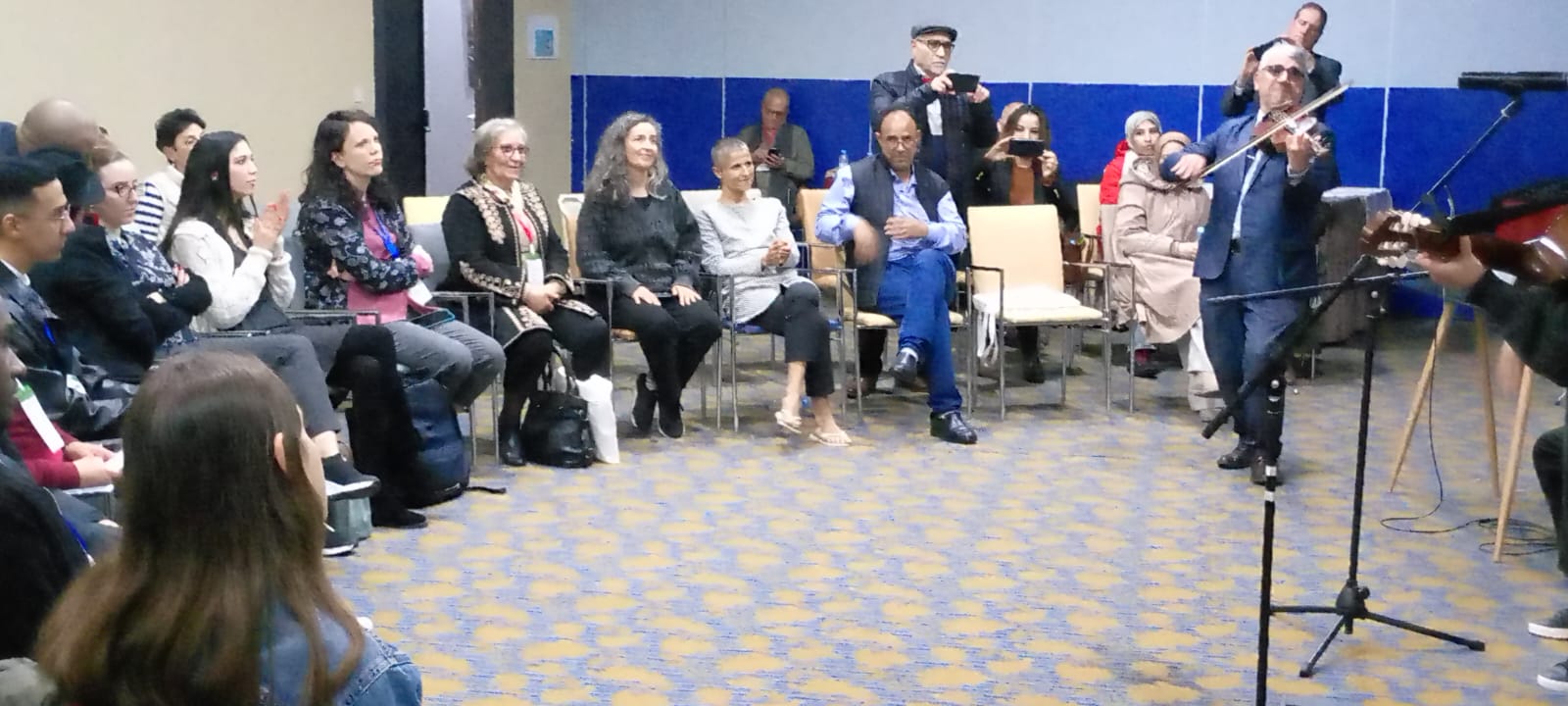
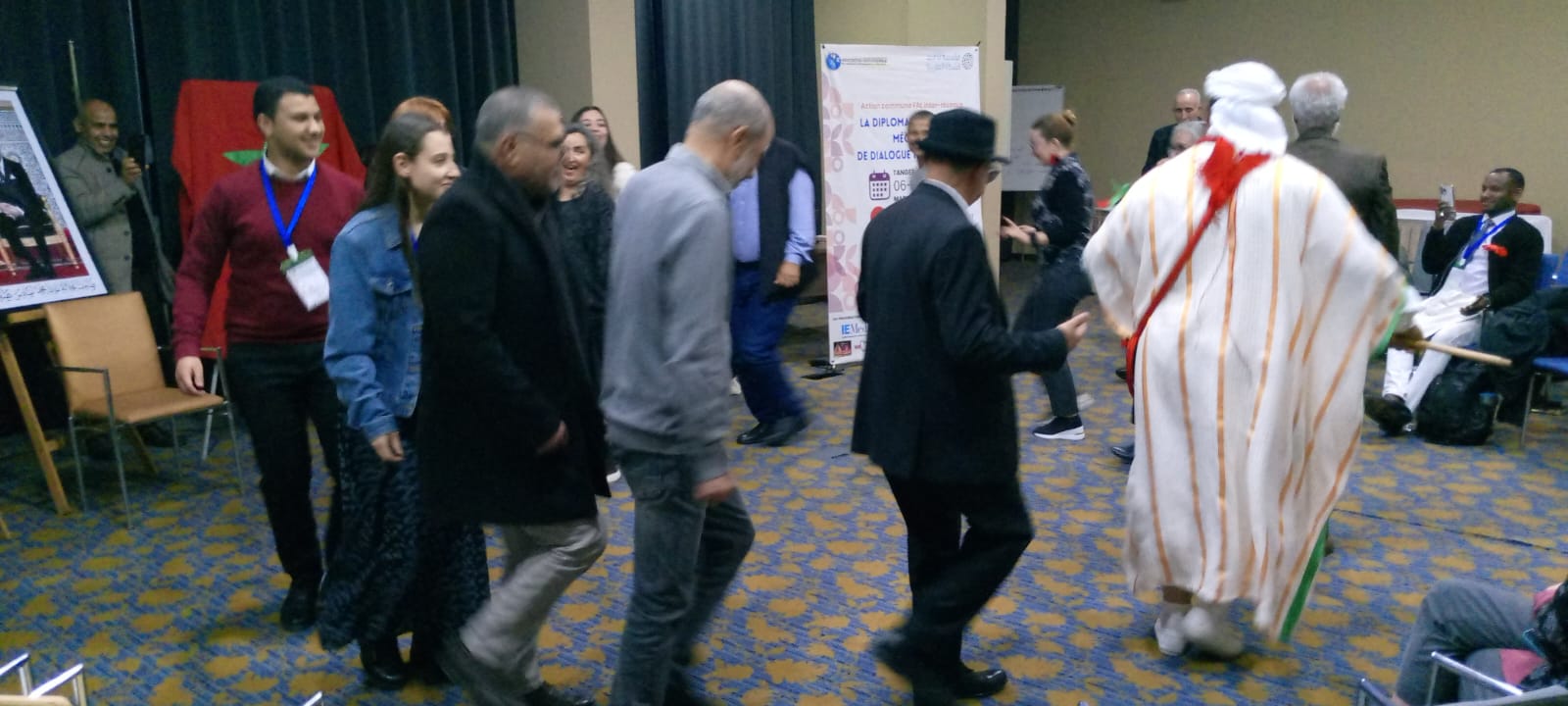
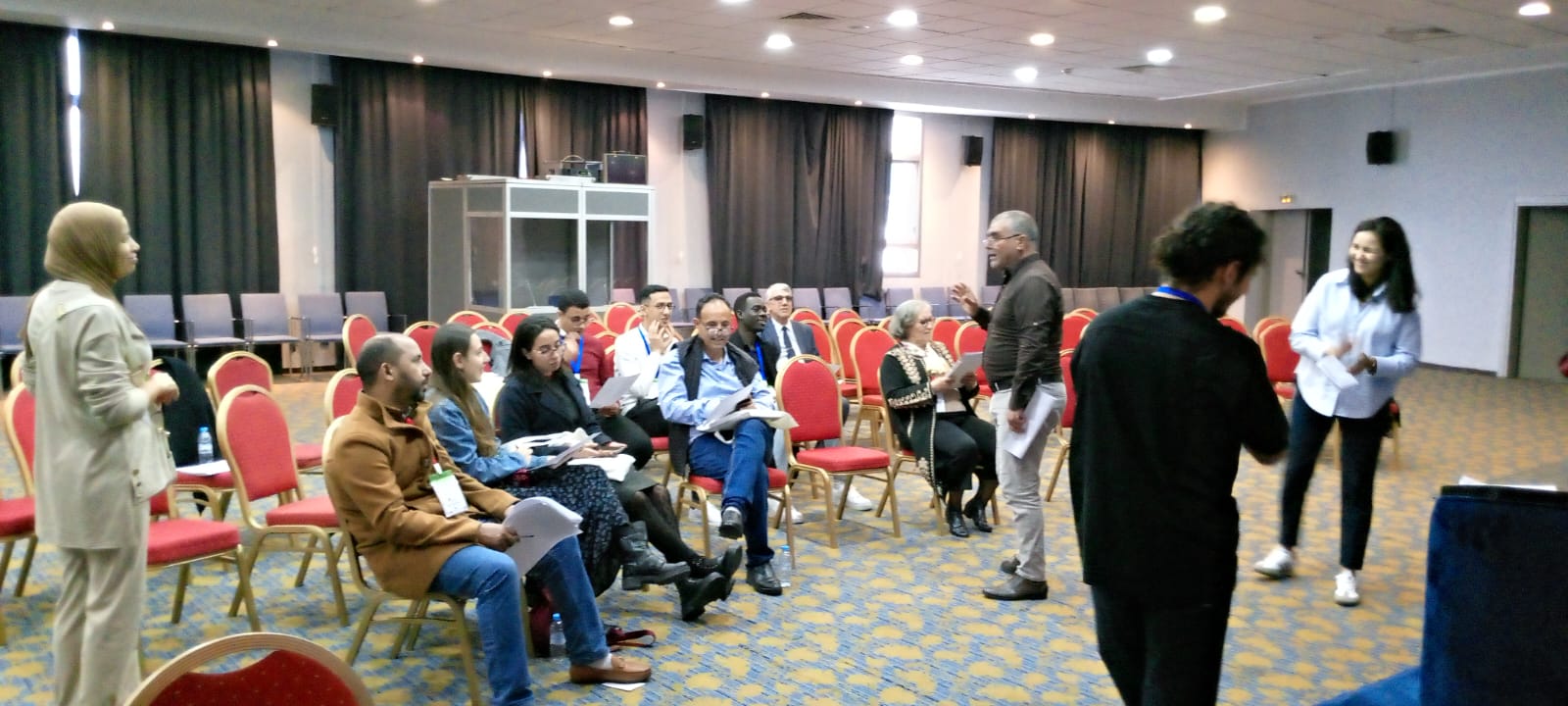
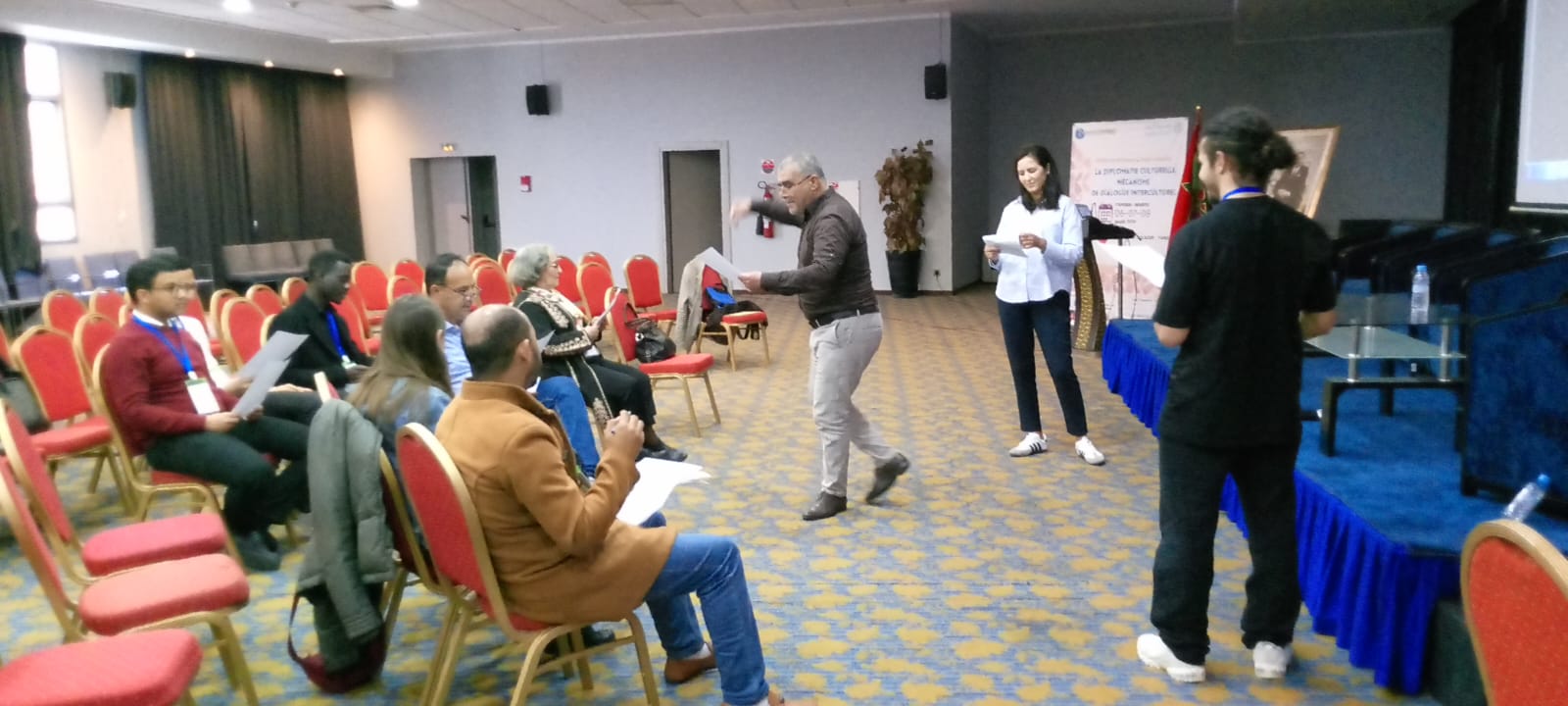
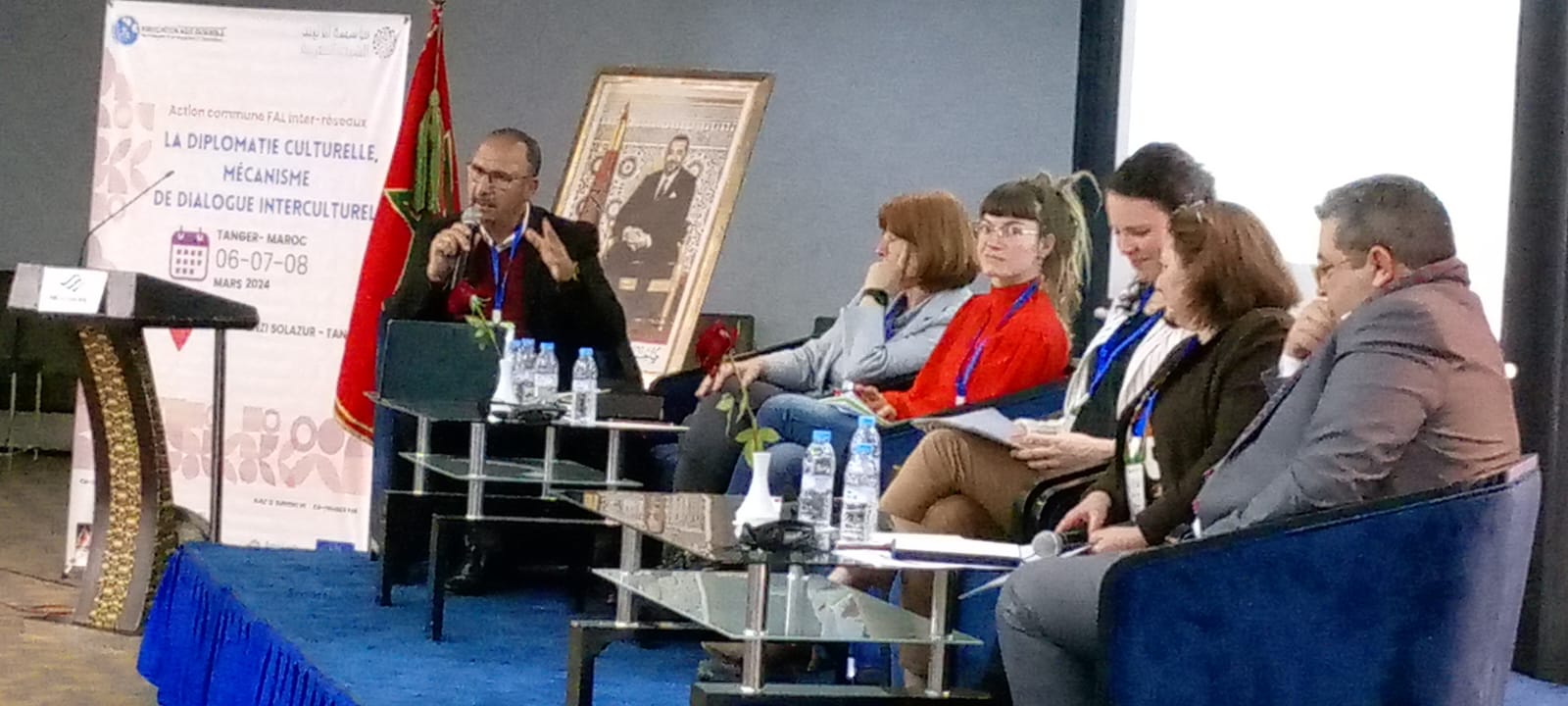
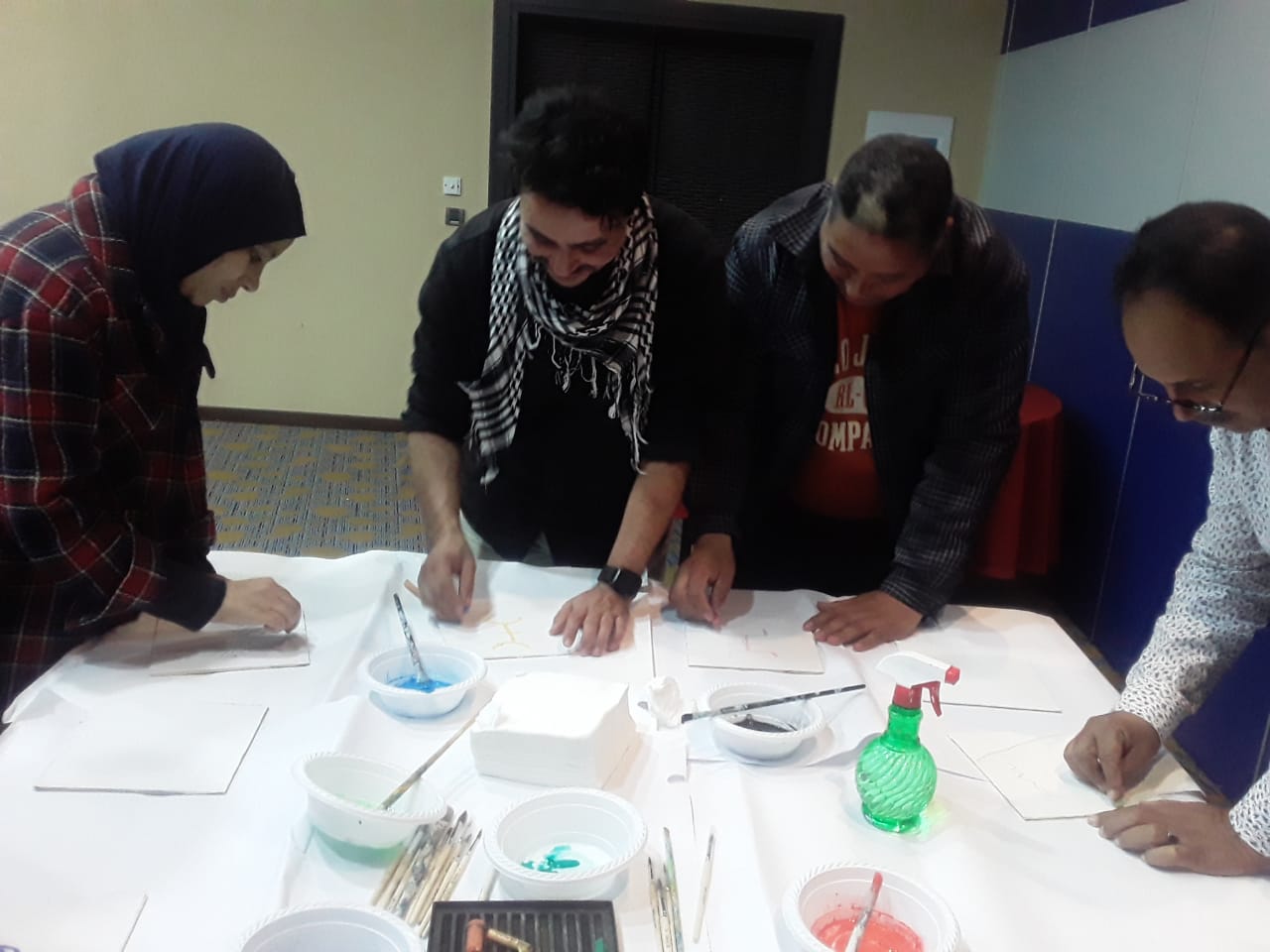
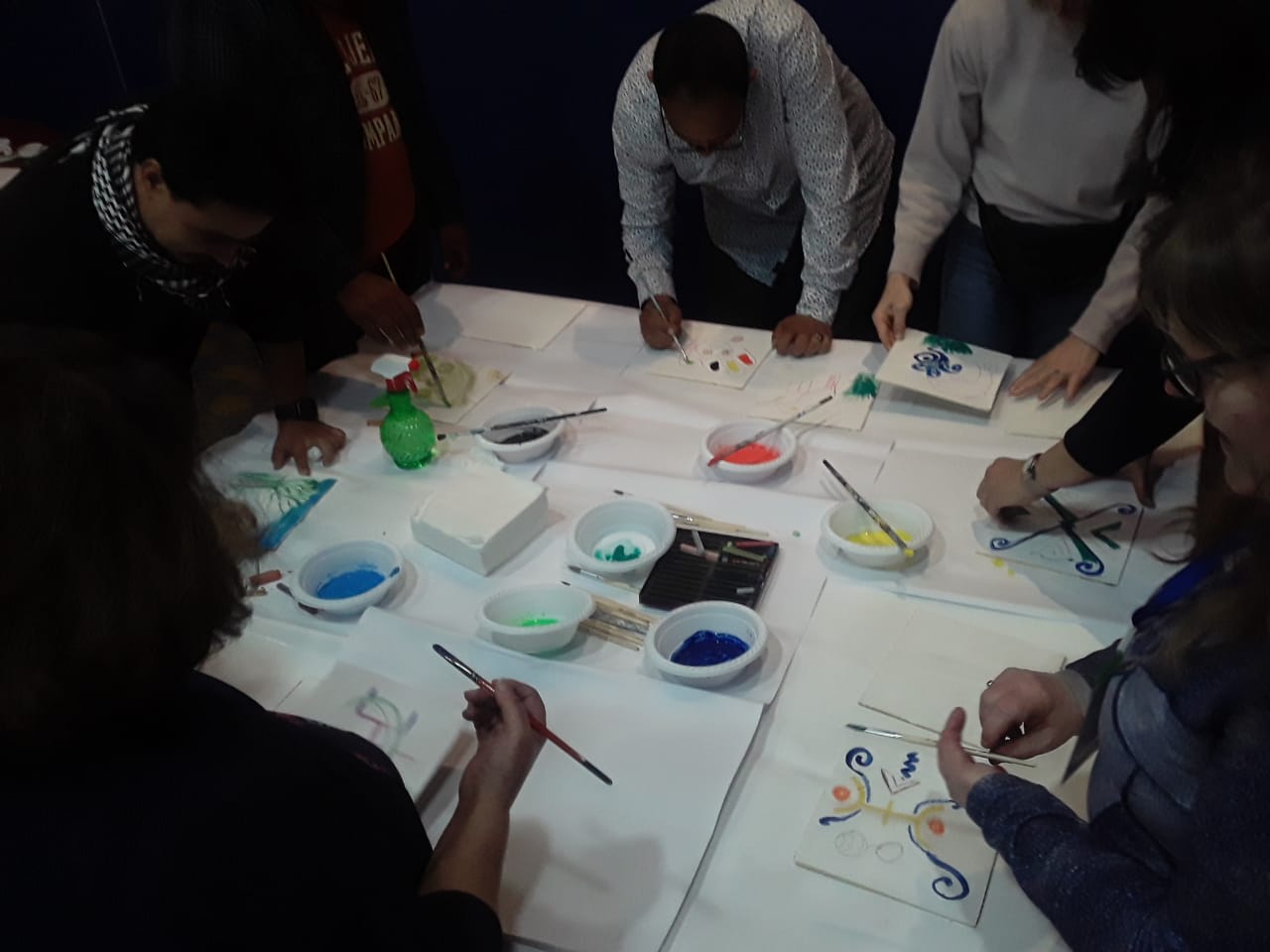
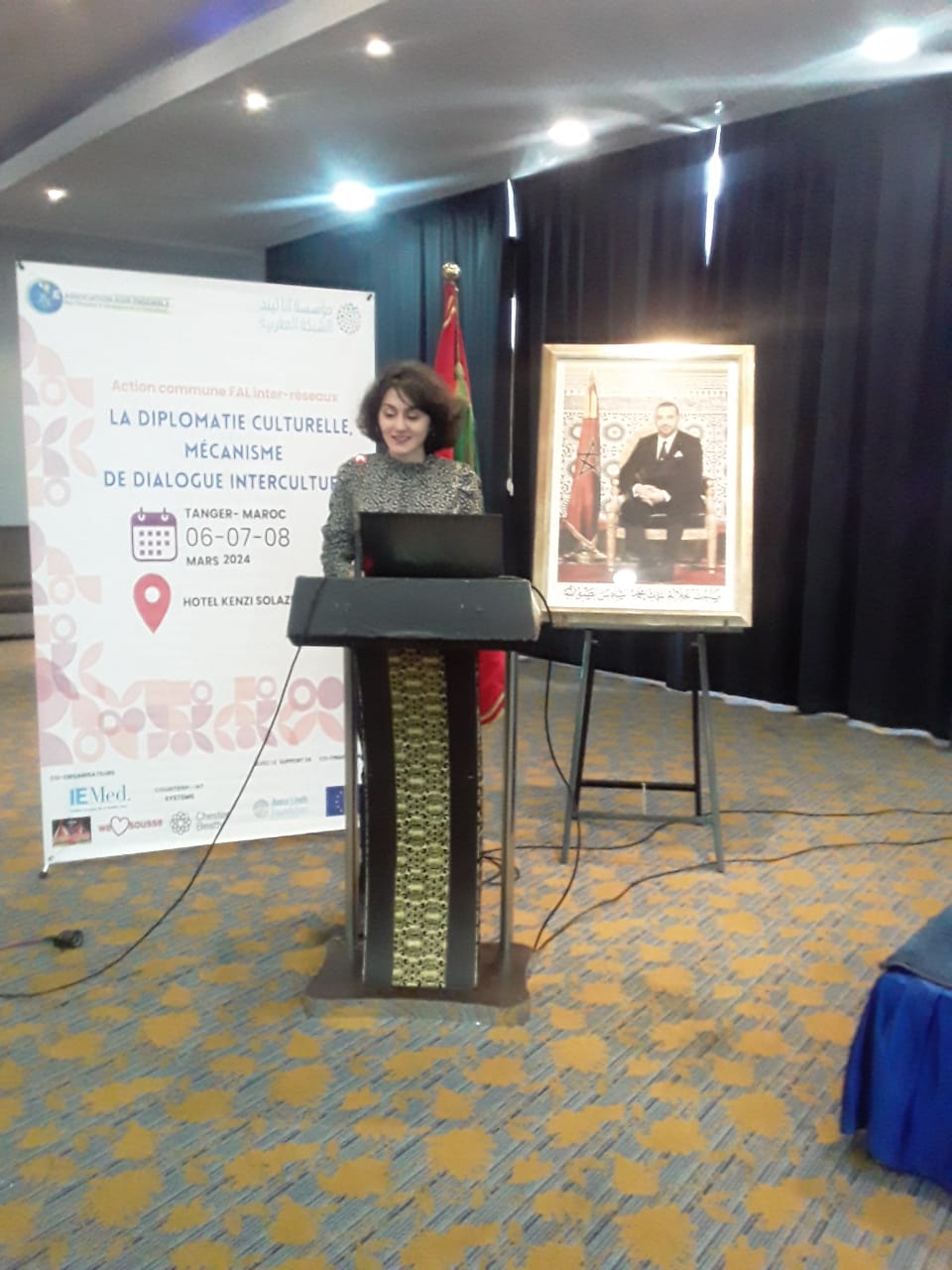
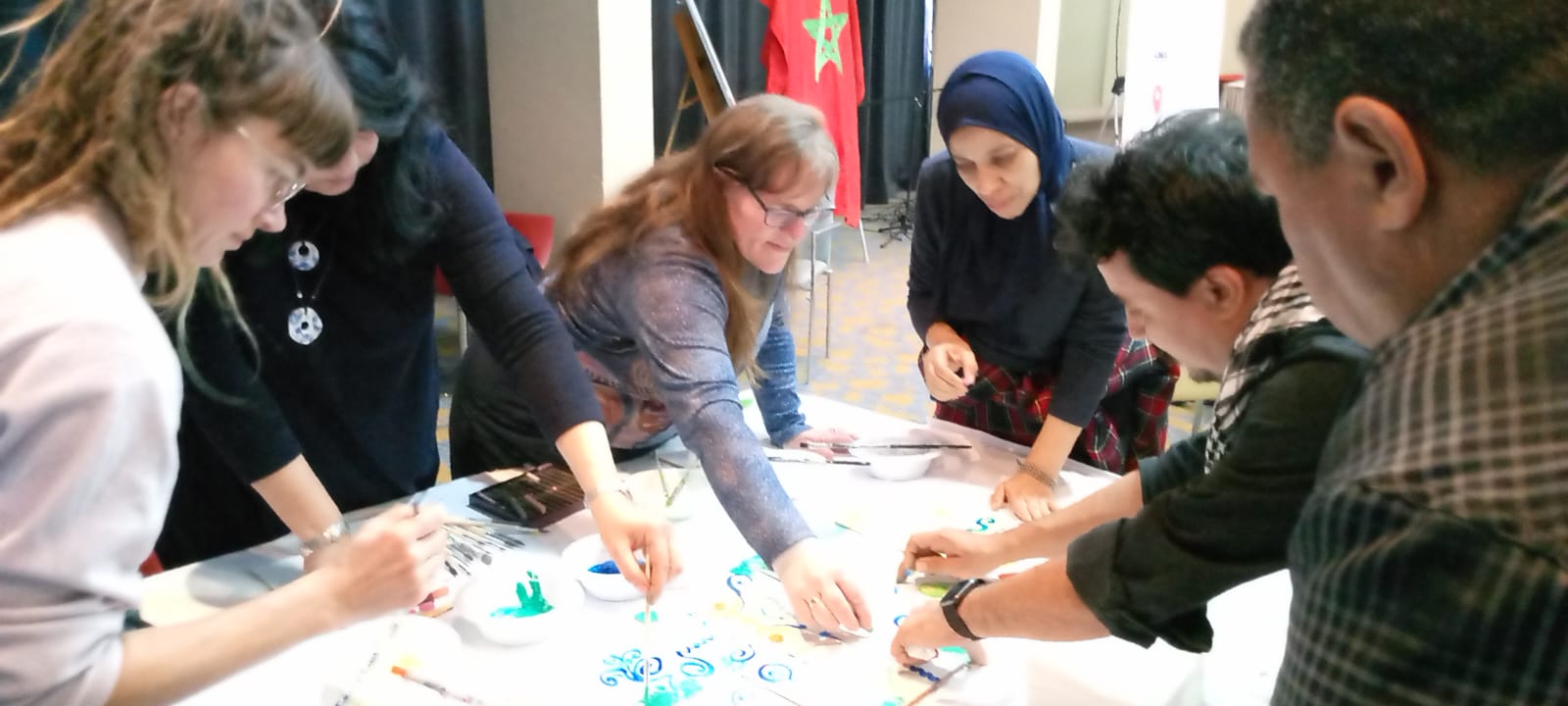
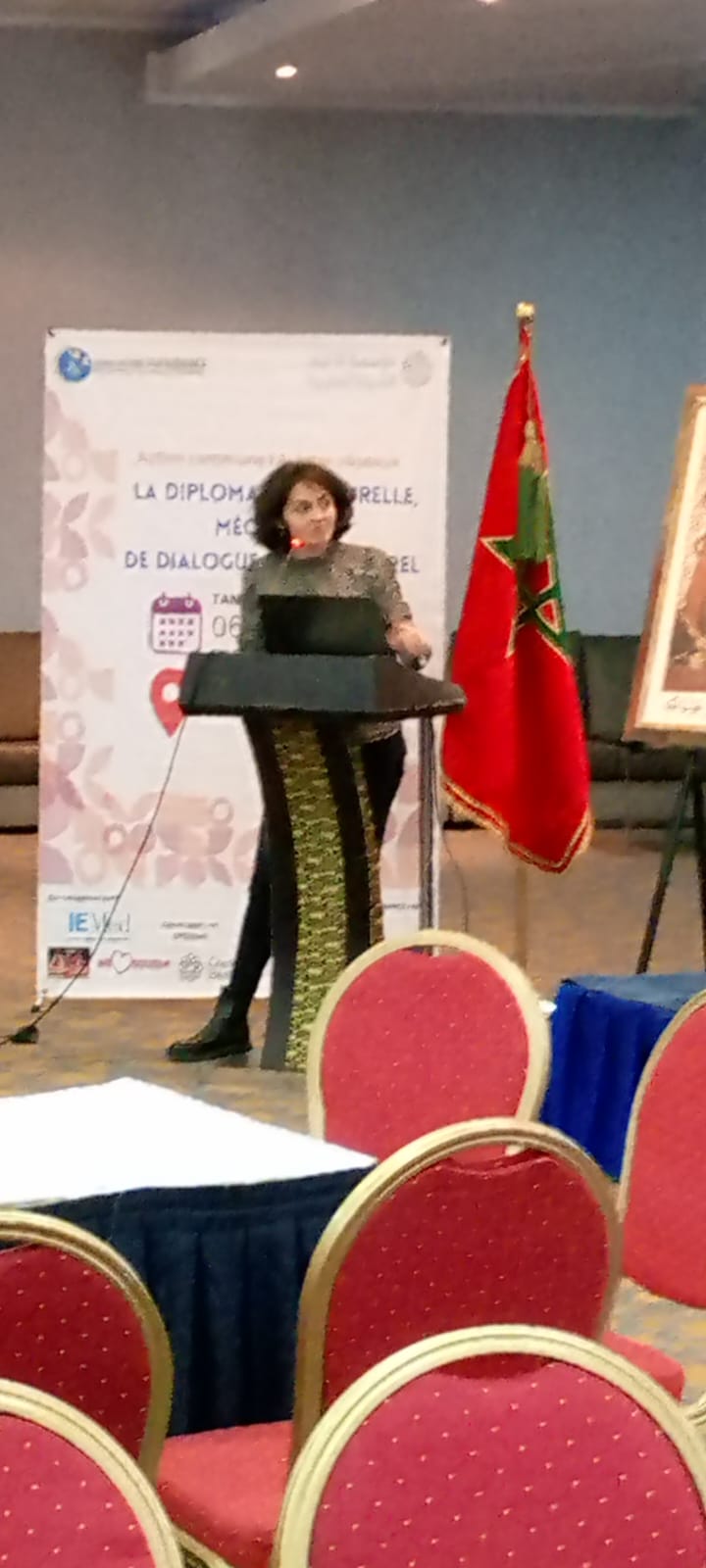
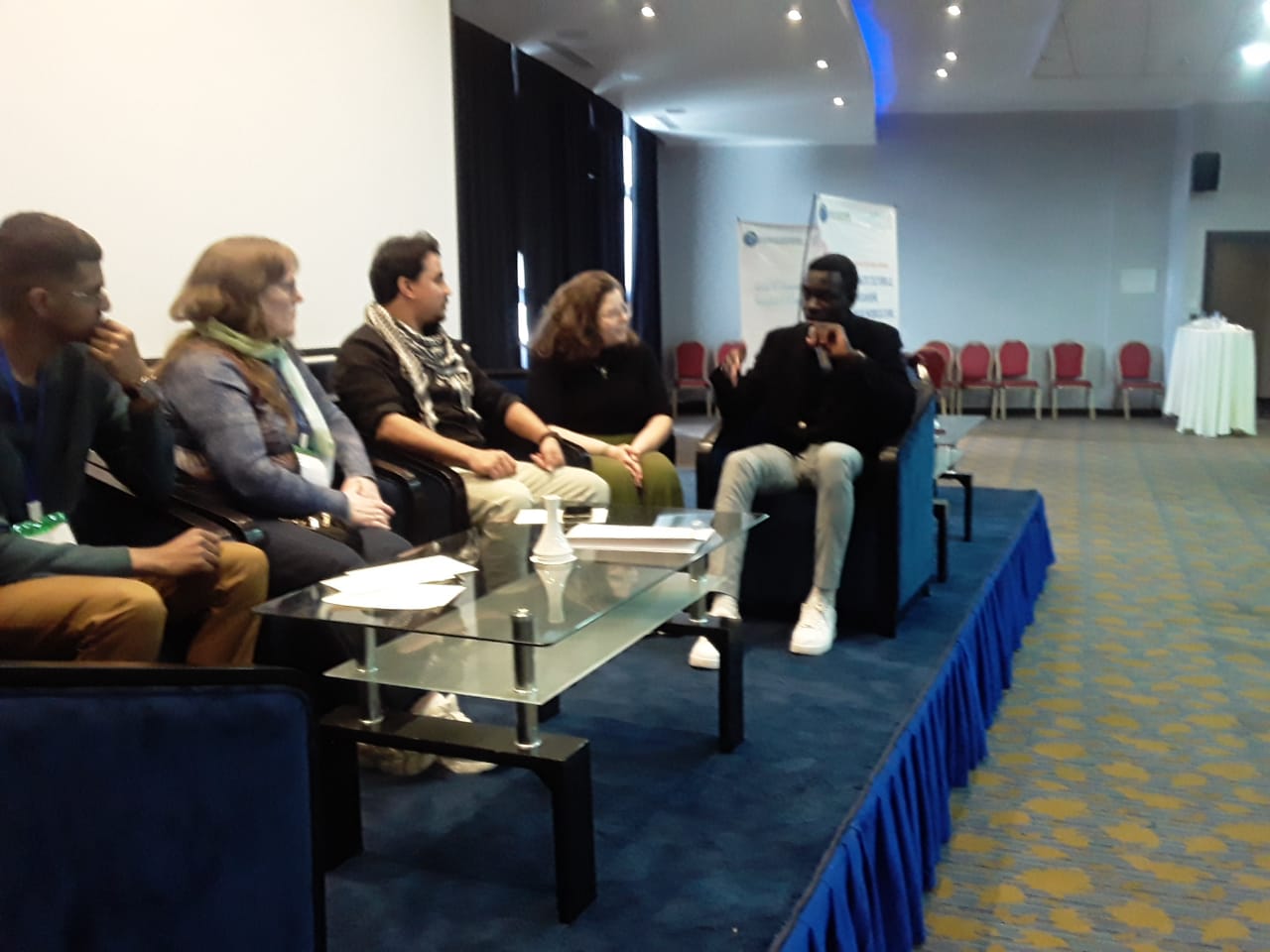
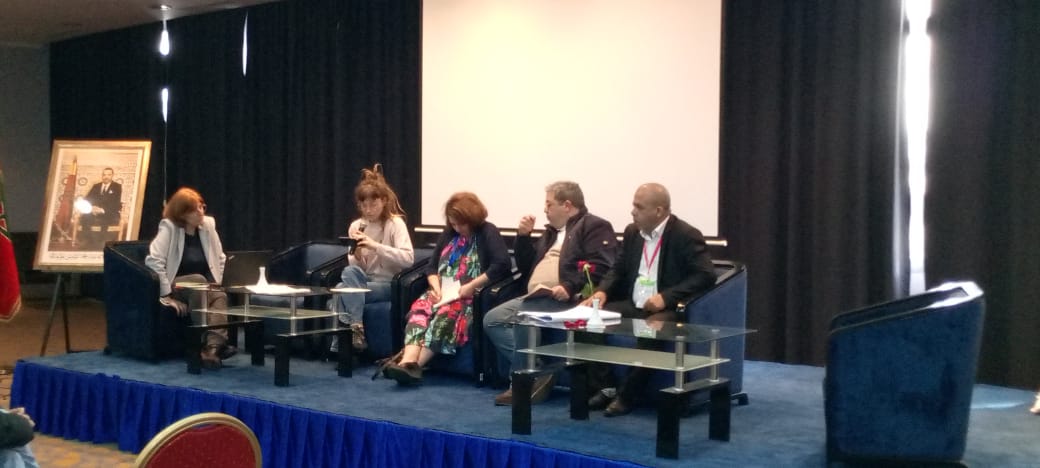
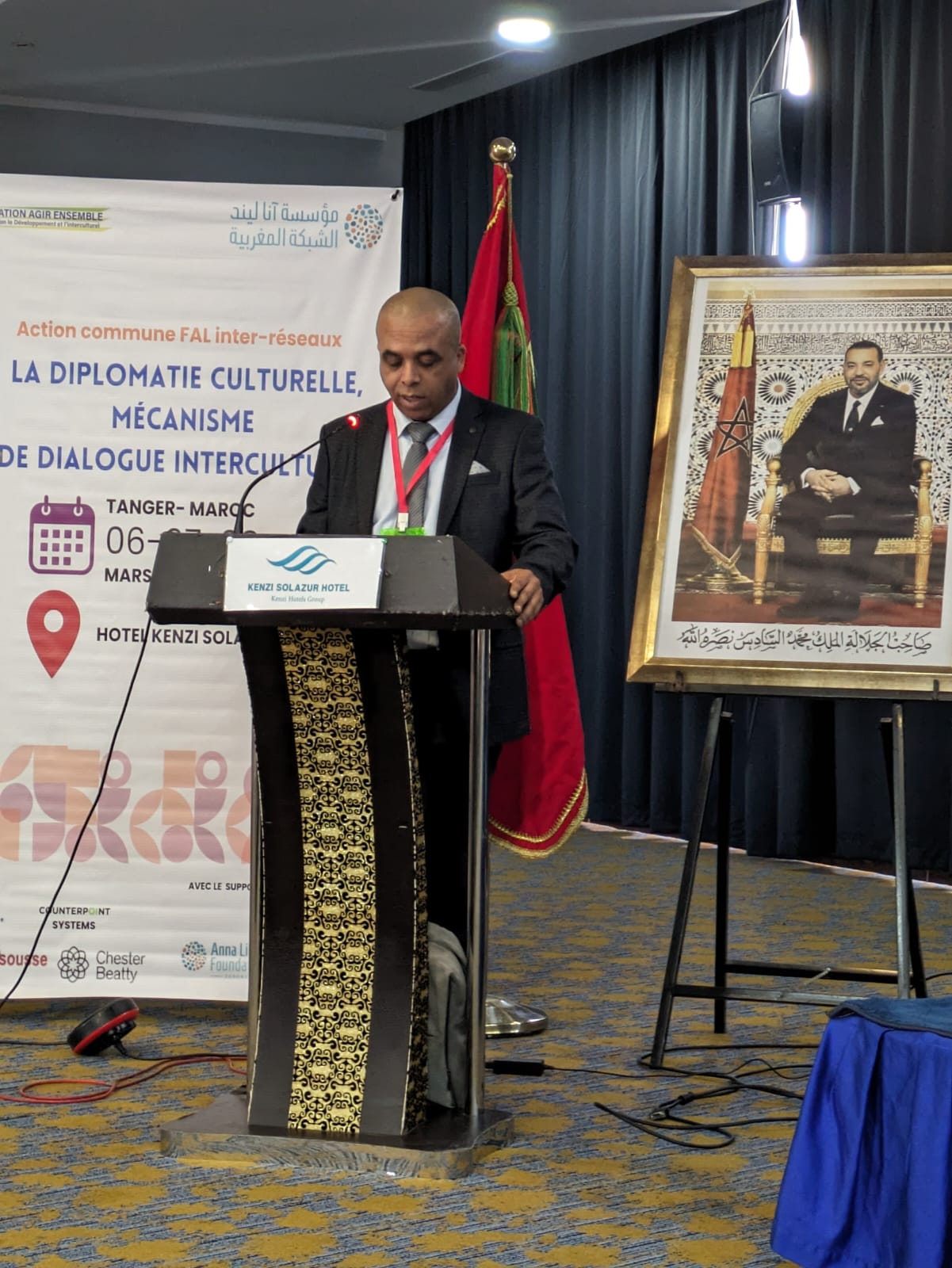
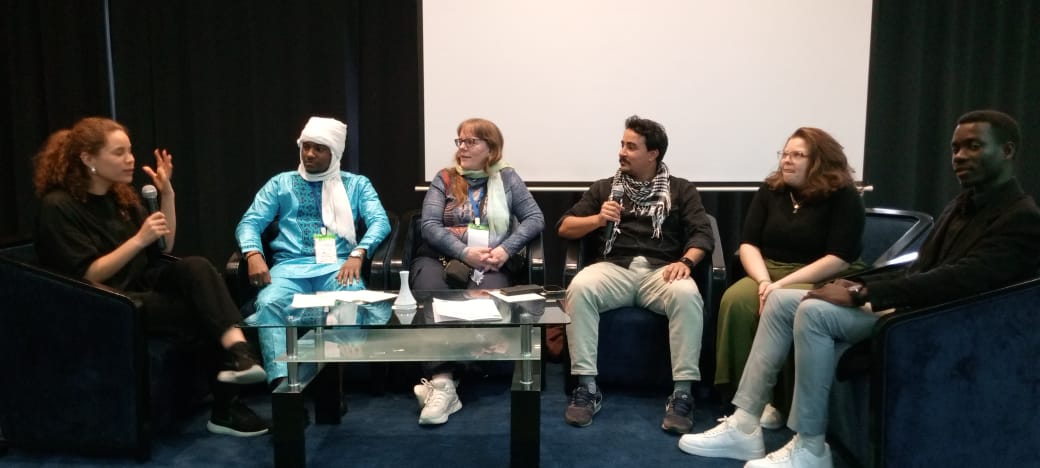
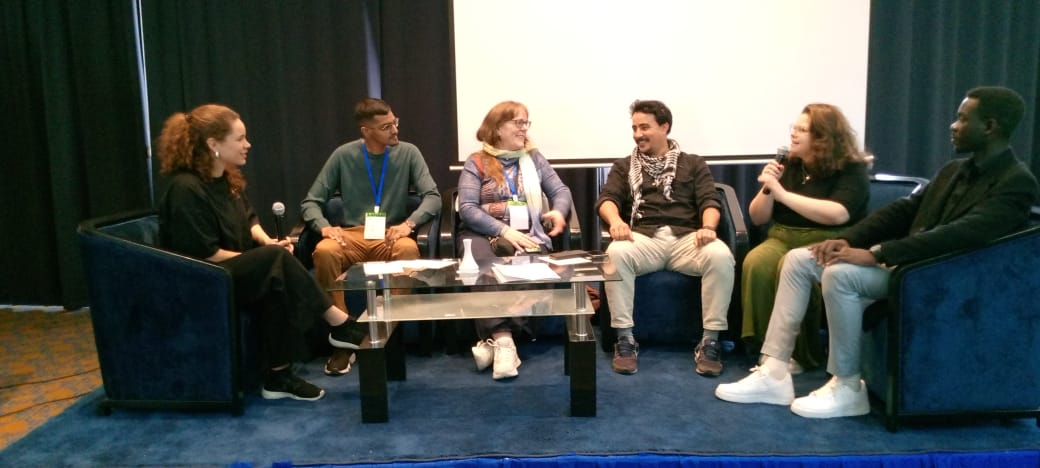
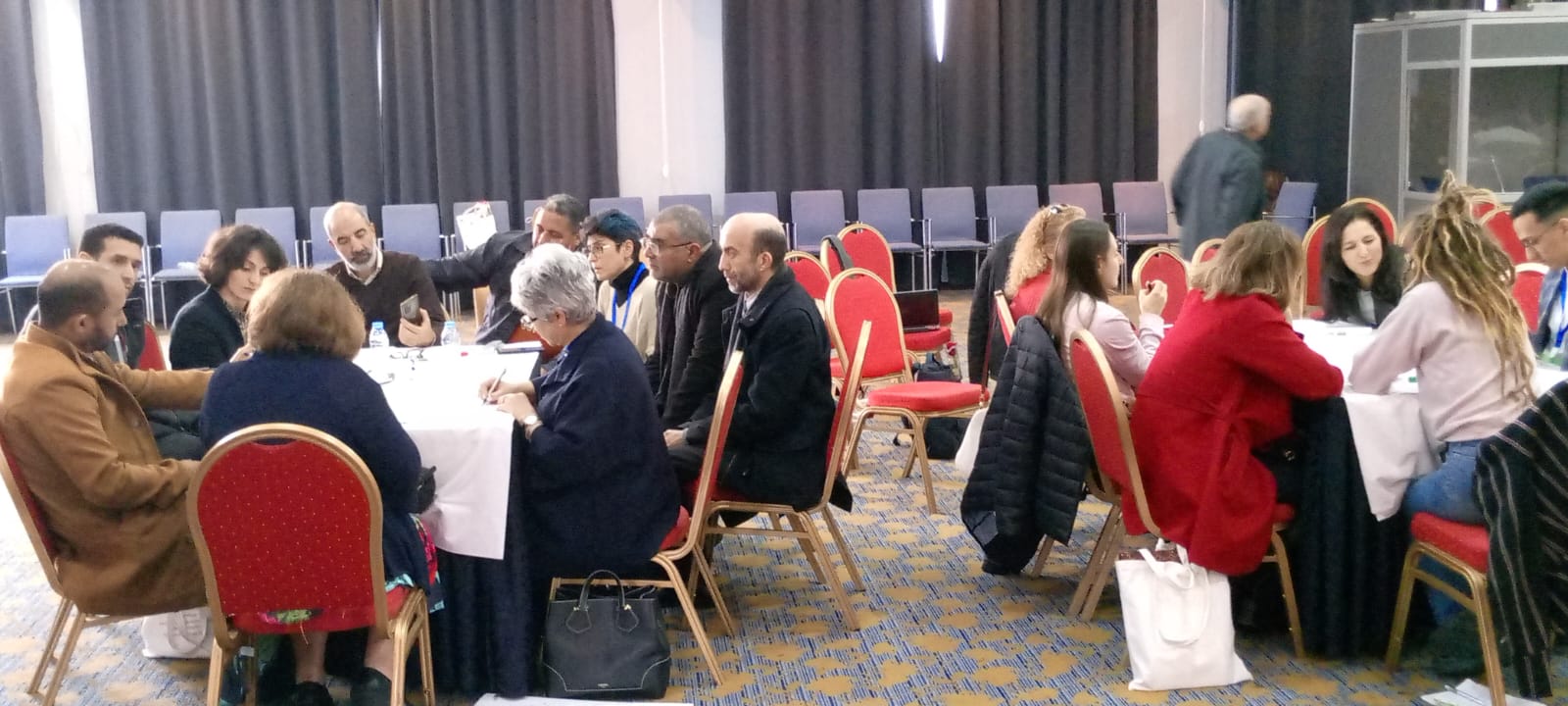
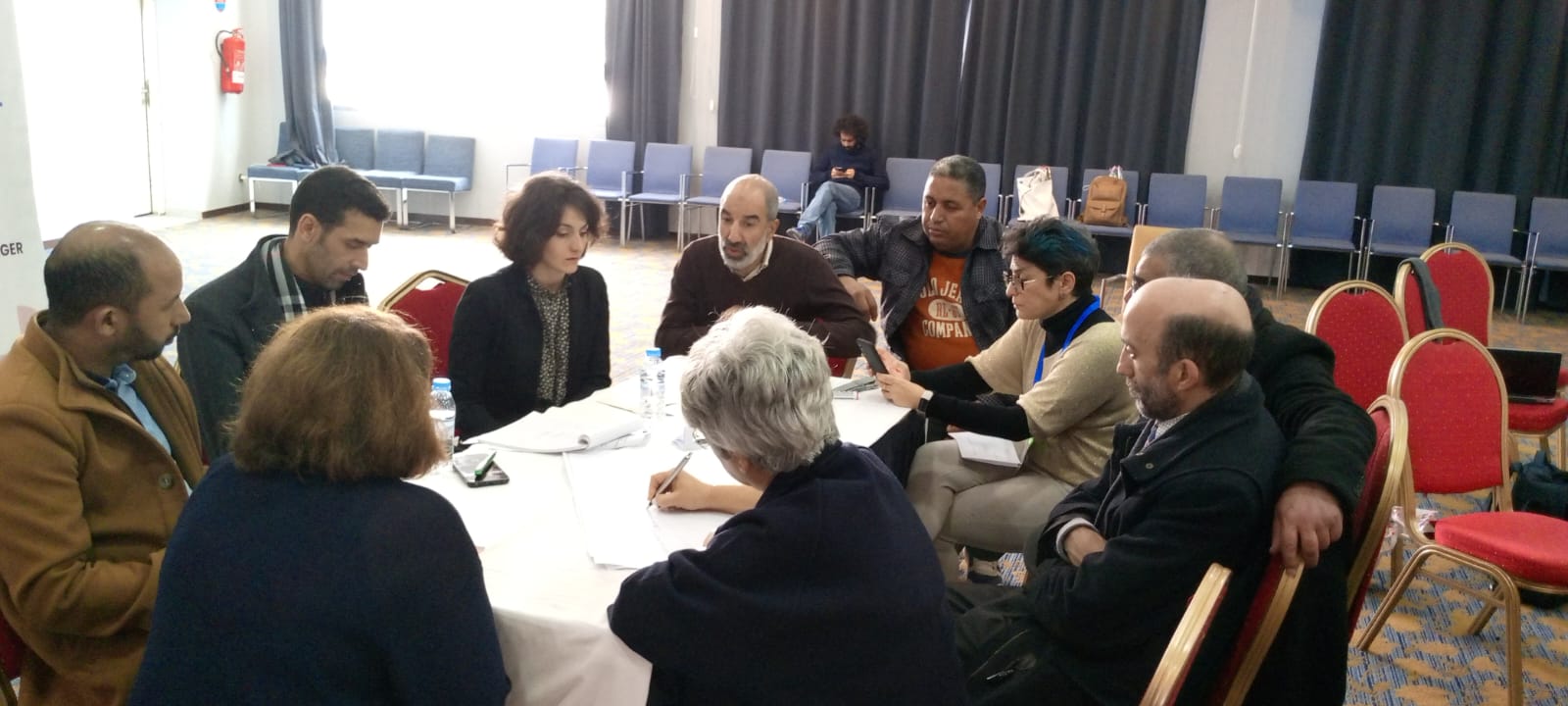
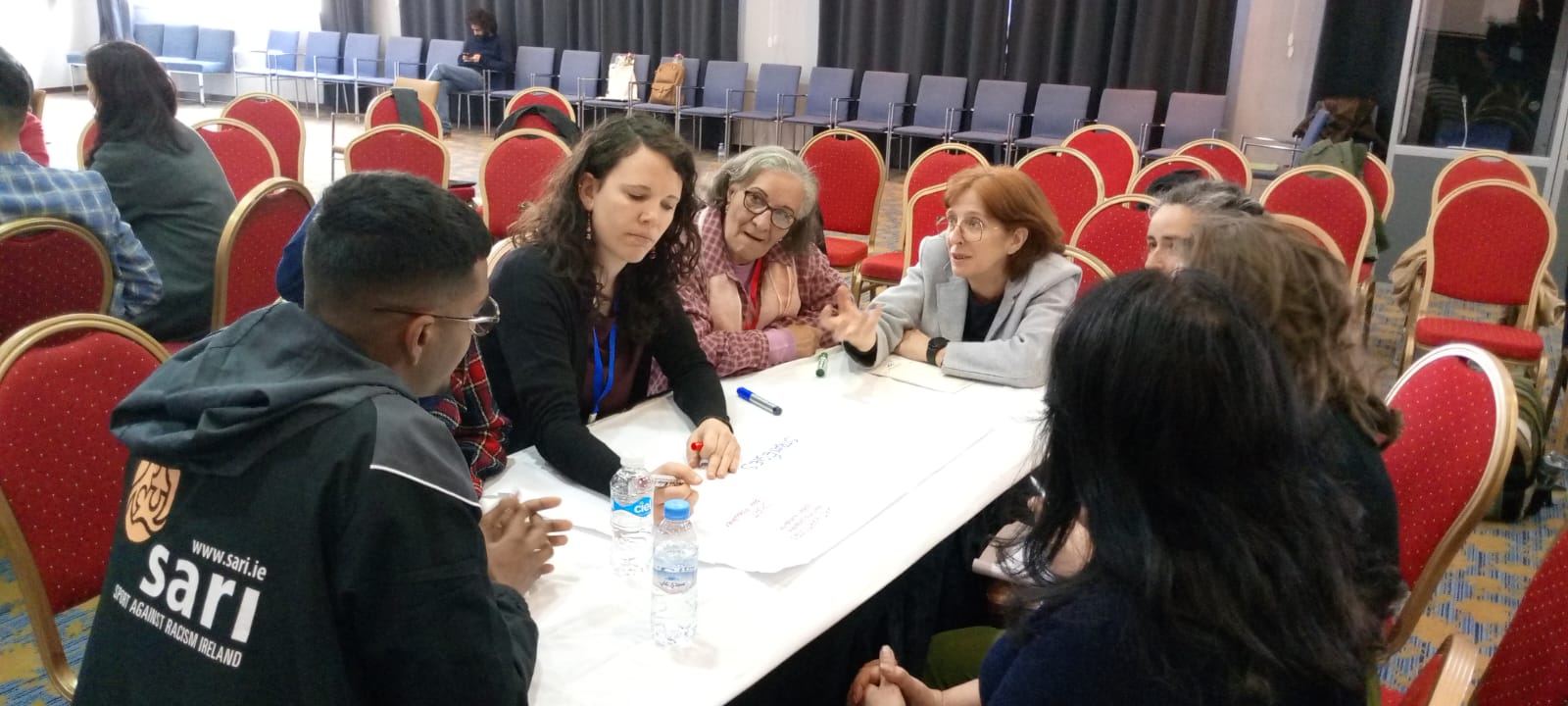
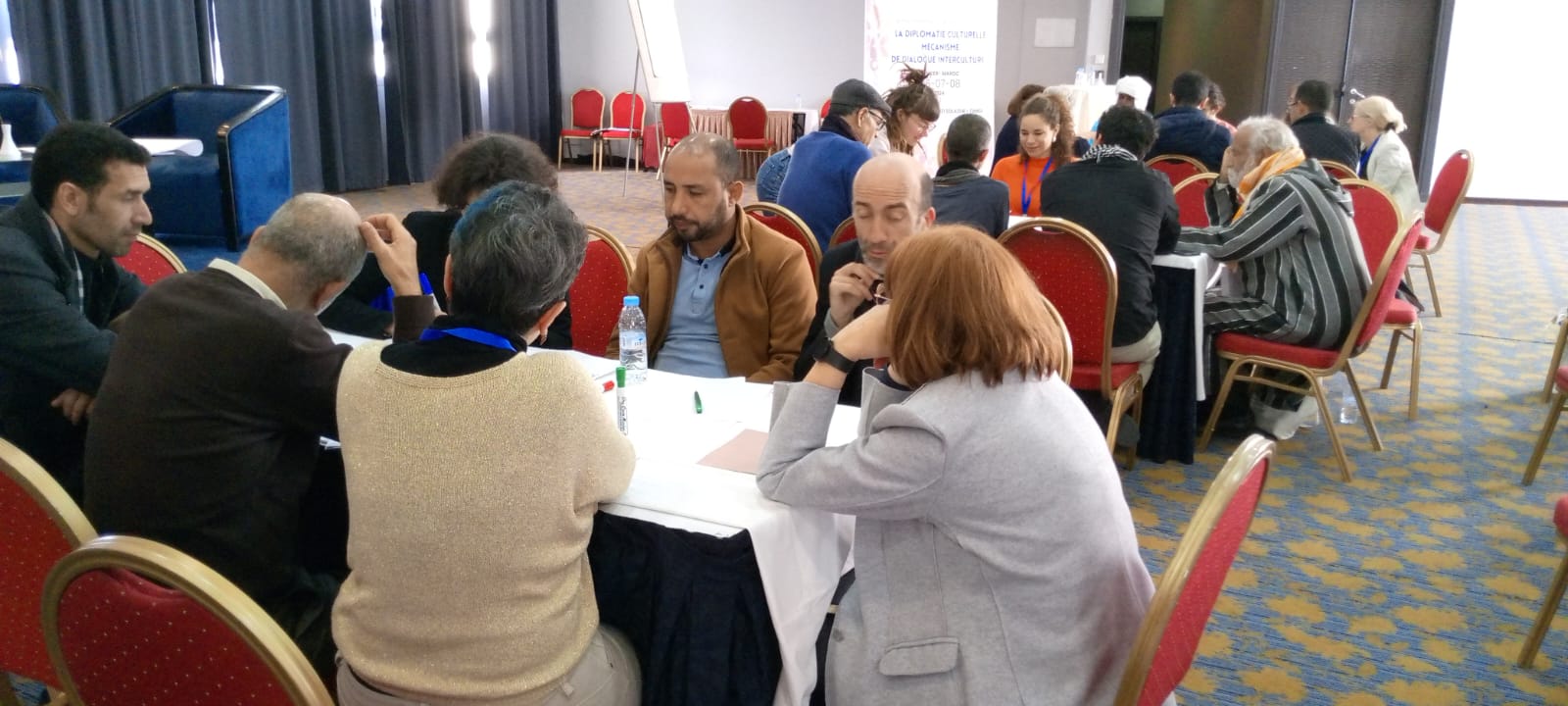
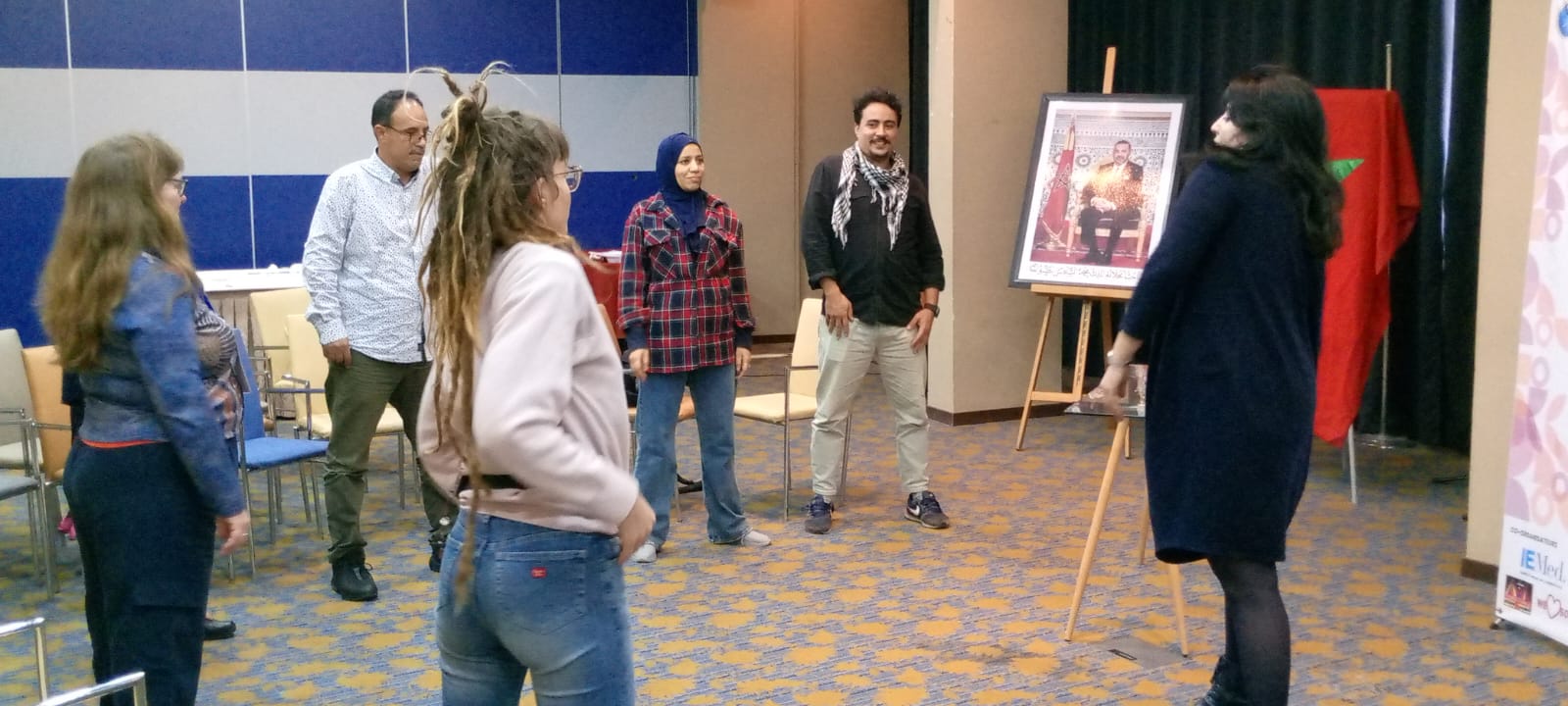
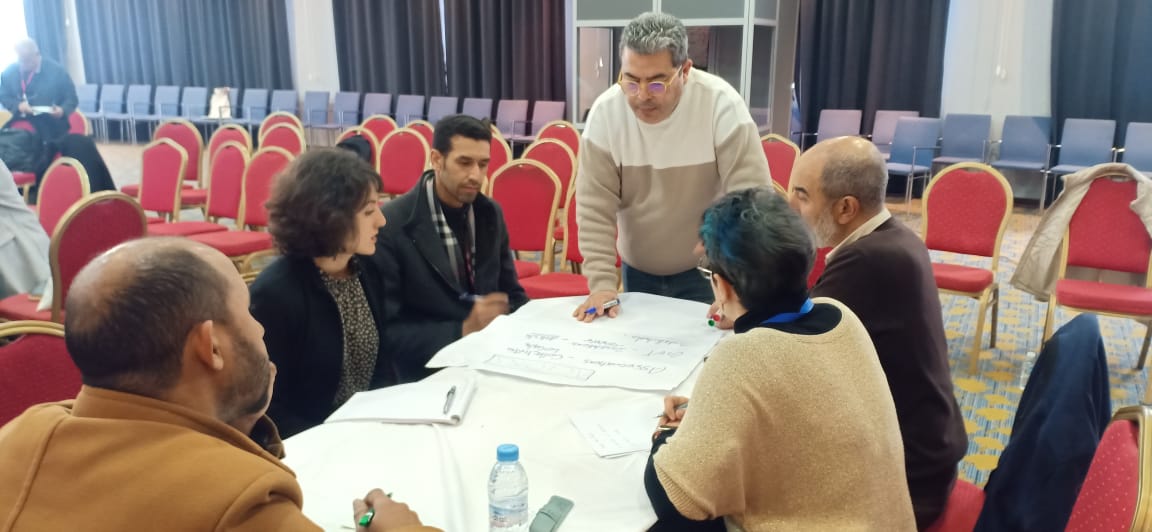

Add New Comment